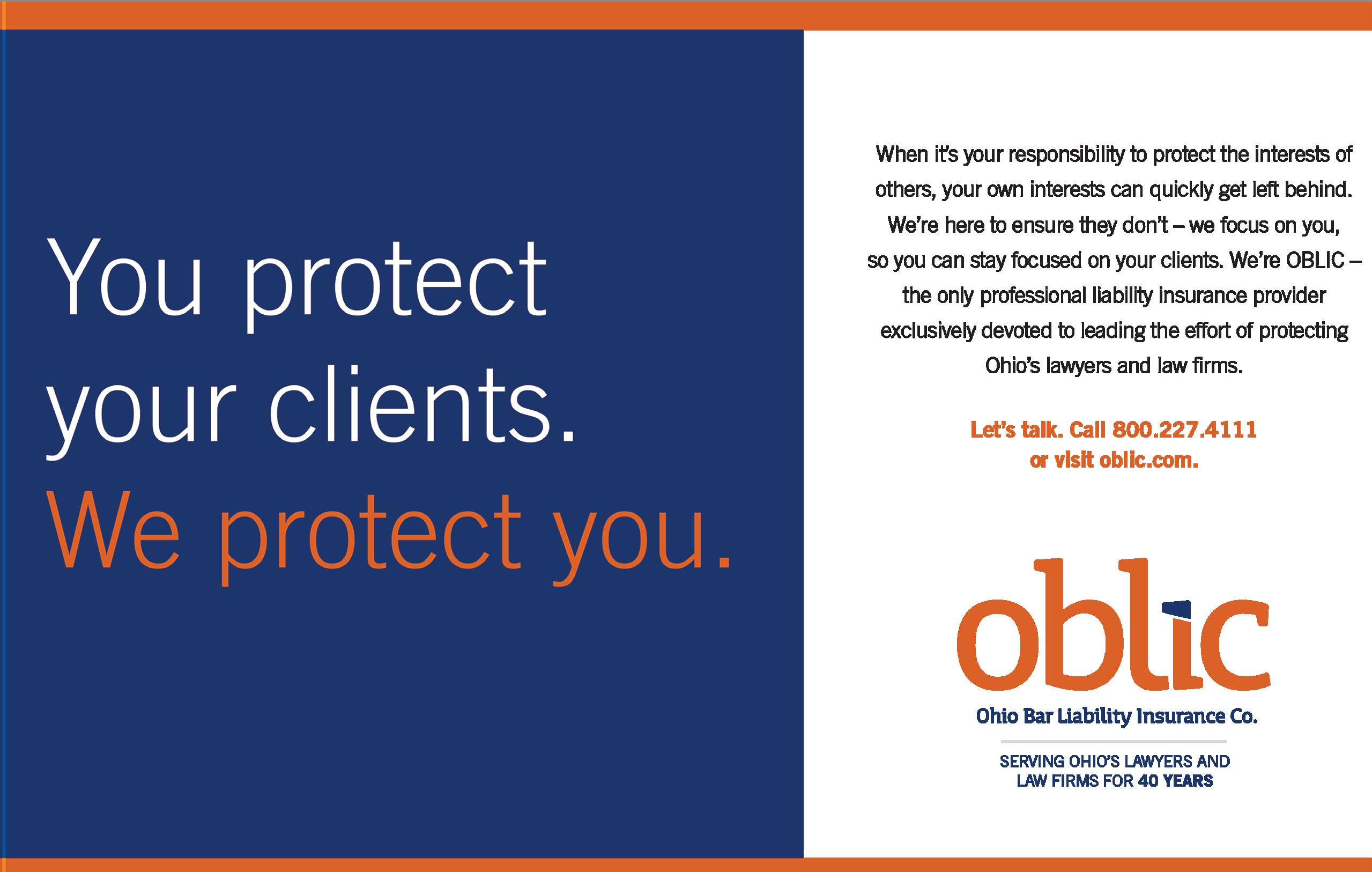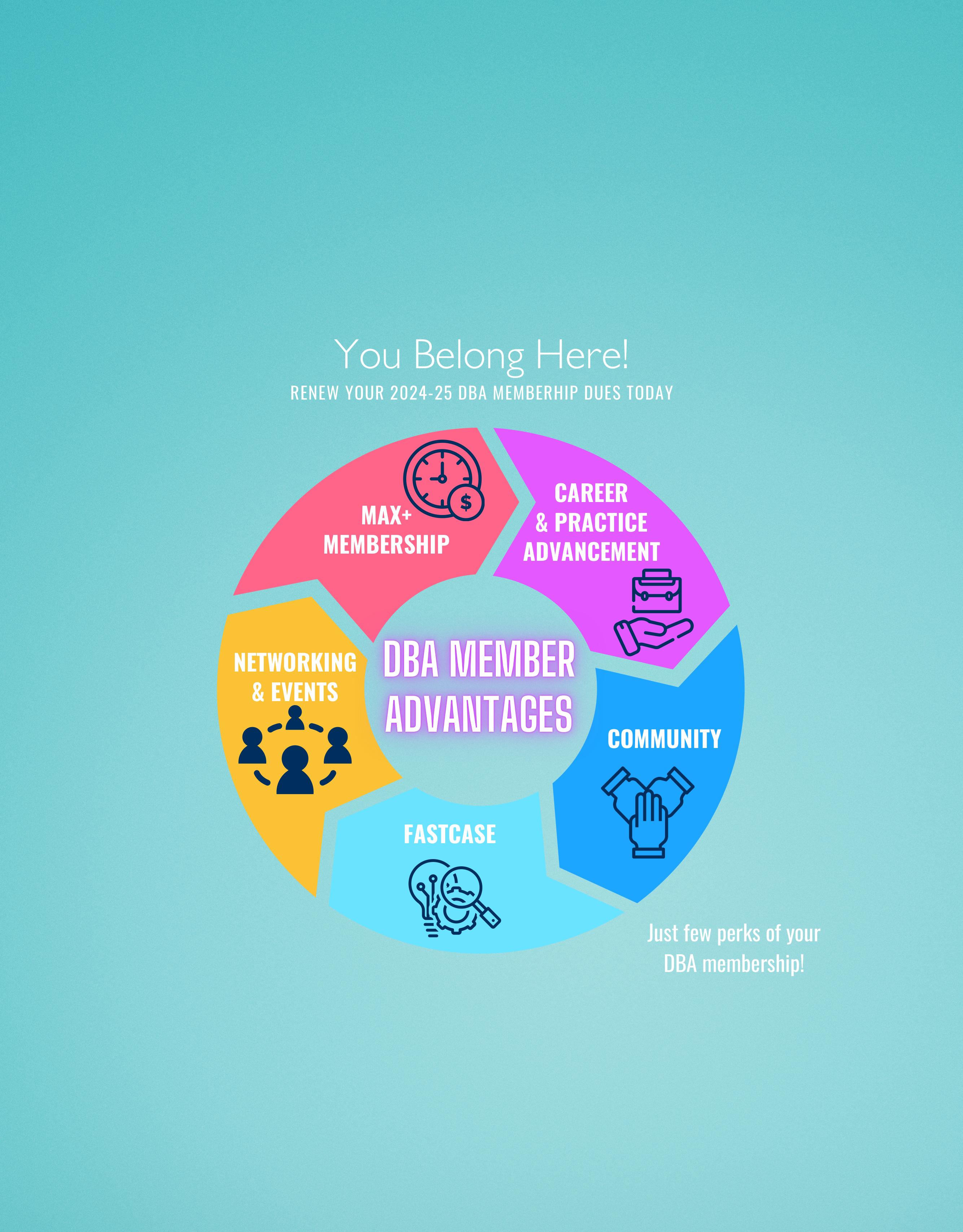






DBA Board of Trustees
2023-2024
Anne P. Keeton President
Hon. MicHAel J. newMAn First Vice President
JAMes H. Greer
Second Vice President
erin e. rHineHArt Secretary
JAMAr t. KinG Treasurer
Jennifer l. BroGAn
Member–at–Large
lAuren K. ePPerley
Member–at–Large
erin B. Moore
Member–at–Large
BriAn l. wriGHt
Member–at–Large
Hon. cAroline H. Gentry
Immediate Past President
JoHn M. ruffolo, ex officio Bar Counsel
Jennifer otcHy, ex officio Chief Executive Officer
BAR BRIEFS is published by the Dayton Bar Association, 109 N. Main St., Ste 600, Dayton, OH 45402–1129, as its official publication for all members. Comments about this publication and editorial material can be directed to the DBA office. The DAYTON BAR BRIEFS is published September/October through May/June.
Paid subscription: $30 / year
Library of Congress ISSN #0415–0945
Jennifer Otchy
Chief Executive Officer
Shayla M. Eggleton
Director, Communications & Membership
Phone: 937.222.7902
www.daybar.org
The contents expressed in the publication of DAYTON BAR BRIEFS do not reflect the official position of the DBA.

TRUSTEE'S
Wealth of Opportunity - Something for Everyone By Erin Moore Esq., Member-at-Large | Green and Green, Lawyers
ILC to BEYC By The Honorable Richard Skelton | Montgomery County Common Pleas Court
John & Jack Hilgeman By David Greer Esq. | Bieser Greer & Landis LLP
Trust me, you missed out: Everything you need to know from the DBA 2024 Annual Probate Law Institute By Megan Bosley Esq. | Roberson Law
Practical Implications of the Supreme Court’s Decision in Coinbase, Inc. v. Bielski By Christopher Wolcott Esq. | Taft Law
Kara Ruffolo Esq. Coolidge Wall Co., LPA By Morgan Napier Esq. | Faruki PLL
Tod's Tips for the Trial of the Plaintiff's Personal Injury Case By T. Tod Mollaun Esq. | Horenstein, Nicholson & Blumenthal, LPA
Alco-Aides an East Side
By Carl Goraleski Esq., NonProfit Clearing House Committee | CiceroAdams, LLC
Provide annual financial support and partnership in our mission to further the administration of justice, enhance the public’s respect for the law, and promote excellence & collegiality in the legal profession.
• Advertising & Marketing Exposure
• Event Sponsorships & Attendee Registrations
• CLE Discounts
• Concierge Service




Bruns, Connell, Vollmar & Armstrong, LLC (BCVA Law) works hard to support our clients for their long-term success. We have extensive experience representing businesses and individuals in a variety of matters, including business disputes, small business and entrepreneurial needs, insurance disputes, brewery, distillery, and liquor permit holder needs, transportation law, employment law, professional liability defense and a variety of other litigation matters. We value our relationships and take pride in delivering a high level of service at a cost based on the client’s needs and the complexity of the problem. Our core values are to work efficiently and effectively. Our Business is Supporting Yours®
FARUKI+ is a premier business litigation firm with offices in Dayton and Cincinnati. The firm’s national practice handles complex commercial disputes of all types, including class actions; antitrust; securities; unfair competition (trade secrets and covenants not to compete); employment; advertising, media and communications; attorney malpractice; data privacy and security; intellectual property and product liability. While its trial practice is national, the firm has always been, and continues to be, committed to the local legal community.
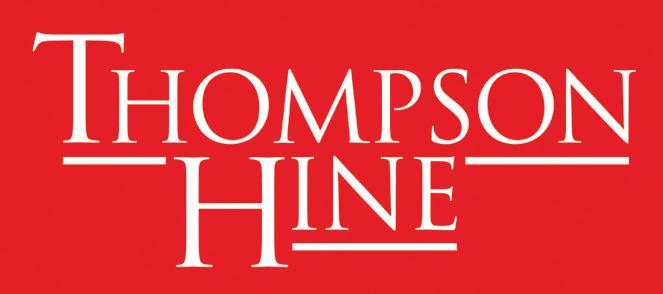
Thompson Hine LLP thompsonhine.com
Thompson Hine LLP, a full-service business law firm with approximately 400 lawyers in 7 offices, was ranked number 1 in the category “Most innovative North American law firms: New working models” by The Financial Times. For 5 straight years, Thompson Hine has distinguished itself in all areas of Service De-livery Innovation in the BTI Brand Elite, where it has been recognized as one of the top 4 firms for “Value for the Dollar” and “Commitment to Help” and among the top 5 firms “making changes to improve the client experience.” The firm’s commitment to innovation is embodied in Thompson Hine SmartPaTH® – a smarter way to work – predictable, efficient and aligned with client goals.



Recently, while looking at the “DBA Peek at the Week” which landed in my email inbox, I took a moment to realize what a wealth of opportunities are available with a Bar Association membership for attorneys at all stages of the profession. In our inevitably busy lives, it’s easy to overlook the breadth and depth of what is made available to all of us as members. The obvious benefits are there, sure, like CLE, the annual Bar Directory and the Dayton Bar Briefs issue you are reading now, but there is oh so much more.
Are you a young lawyer just getting started? New graduates get a year of DBA membership for free! Beyond that, the DBA ensures that there are at least 12 hours of new lawyer CLE available each year, including the New Lawyer Bootcamp for a whole day of education at once.
Are you a few years into your profession and looking for more personal and professional development? Join one or more of the 13 substantive sections, which meet regularly from September 10 May to meet with fellow practitioners to discuss current issues in the various Section subject areas or get involved with any of the 10 Service and Special Interest Sections, which span a scope from personal
wellness with the Health and Wellness Section to critical practice issues such as Bar Examination and Qualification Section and the Ethic, Grievance and Fee Dispute Sections. Attorneys with two to five years of experience, a devotion to the practice, civic involvement and an interest in building business relationships also can be nominated for participation in DBA’s 10-month, limited class size Leadership Development Program for an in depth, focused opportunity for wholistic professional education.
Practical assistance is also readily available with the DBA. Do you want to expand your availability to potential clients? Sign up for the Lawyer Referral Service. Do you want to give back by helping folks with legal issues who might not otherwise be able to afford it? The Volunteer Lawyer Program appreciates everyone who can donate their service and the Wills for Heros program regularly offers will preparation services for military and first responders. Do you need to find additional personnel for your office? The DBA provides both staff and attorney job postings. You can also access Fastcase Legal Research through the DBA website to get some work done.
But what about getting to know your fellow members? Yep, DBA has plenty of resources for that too. Gatherings throughout the day are available, so there are many options to work in into your schedule. Got time for a cup of coffee? Join fellow members for one of the DBA Coffee Talks to chat with other DBA members about current issues in a casual setting. How about lunch away from your desk and with other humans? Lunch is provided at the Chancery Club meetings that also include a speaker on wider community topics and interests. Happy hour? That’s also covered with periodic social networking events held at various local establishments to meet colleague and friends, old and new. Dinner? The Carl D. Kessler Inn of Court covers all bases with a social hour, dinner, and a CLE speaker, all in one meeting. Not as food focused as I obviously am? Want to learn about Dayton legal history on your commute? Check out the Re-Trial Podcast hosted by our own David Greer and Judge Gerald Parker.
The best way to fully appreciate this embarrassment of riches is to get involved - there’s something for everyone!


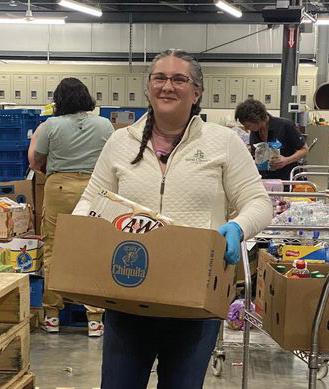


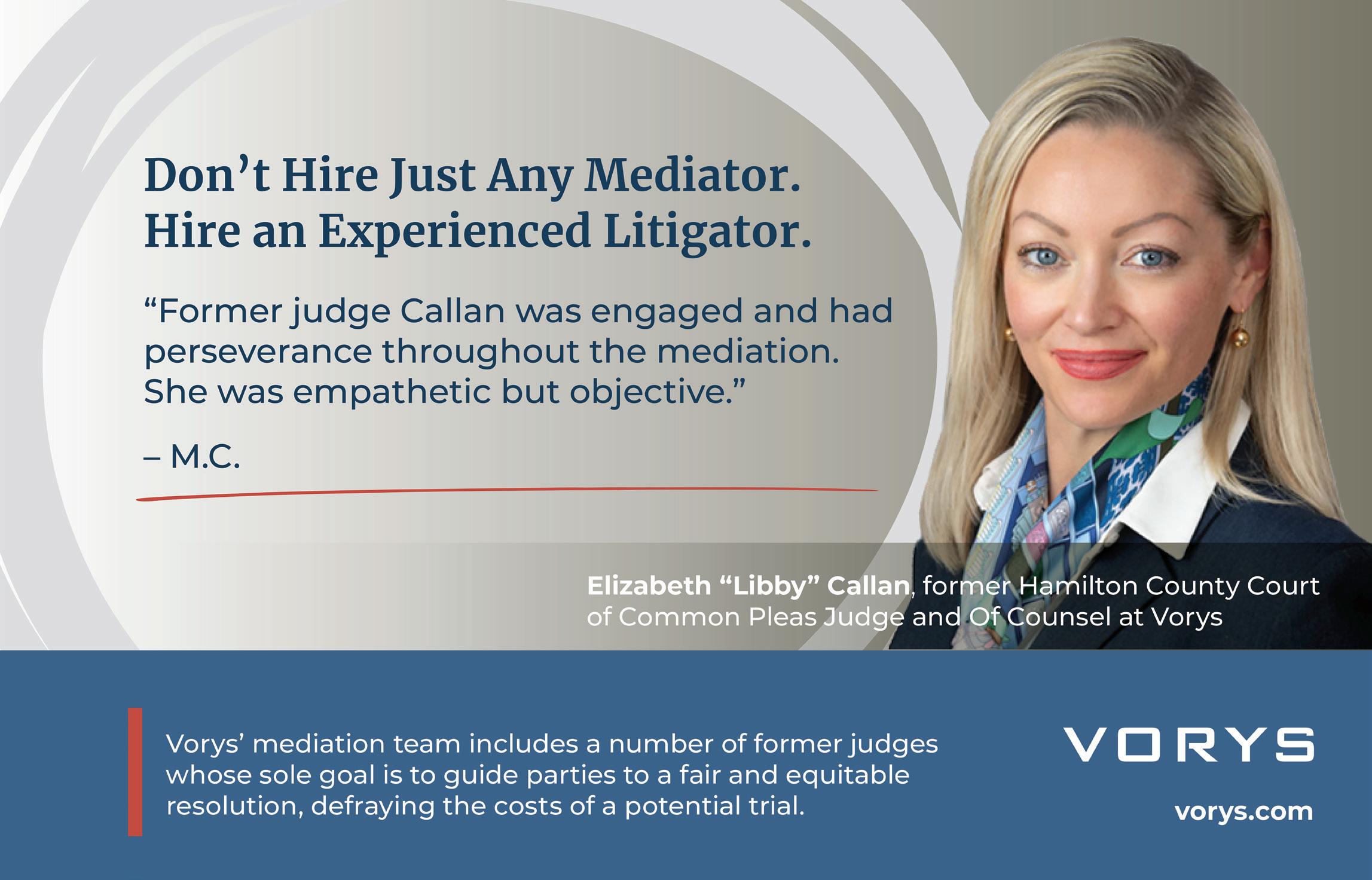

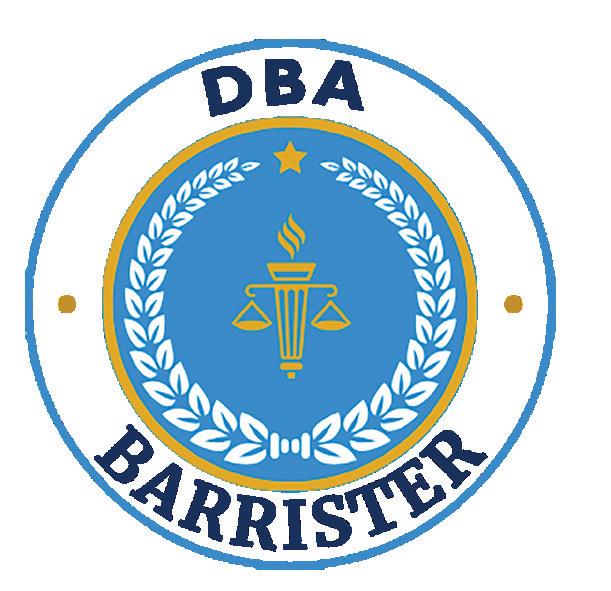

List for yourself the attributes of character and personality which create a praiseworthy attorney. Your list is likely to include integrity, honesty, decency, empathy, an energetic but balanced competitive streak, creative imagination, forensic skill. Your list may include other traits, and we all posses in varying doses and mixes each of those traits.
There is one other attribute without which none of those traits can become effective. That attribute is perseverance, and perseverance is a quality which the father and son who are the subject of this little essay possess an abundance.
John P. Hilgeman received his law degree from the University of Dayton Law School in 1982. His son and partner, Jack R. Hilgeman, received his law degree from the same Law School twenty-eight years later. Both, before and after the launching of their legal careers, have fueled their intellectual achievements with athletic achievements. John was a baseball player and, later, a coach who kept his teams practicing until daylight turned to darkness. For the past thirty years he has performed every week as a member of a championship bowling team. In one glorious year he posted a perfect 300 bowling score and a hole-inone on the golf course. Jack was part of the Alter High School basketball team which came close to winning the state championship in a contest with a team which featured a player named Lebron James. He also played soccer and baseball. In recent years John and Jack have teamed up in various member-member golf outings.
Following law school John spent almost a decade with Mead Data Central as it morphed into Lexis-Nexus with management positions in product development, data operations and corporate planning. In 1989 he decided to enter the private practice of law and began working with attorney Jack E. Staley, a relative and a colorful member of the local bar. In 1991 he joined the firm of Altick and Corwin. It was there that he encountered Chris Cowan with whom he formed a new partnership in 1994.
During law school, Jack interned at the Montgomery County Prosecutor’s Office and worked on files at his father’s firm, and after passing the Ohio bar in 2010, practiced law with a family member in San Diego, California where he had passed the California bar. With that San Diego firm he gained experience in criminal law and appellate work, but decided that his strength lay in representing plaintiffs and civil litigation. In 2012 he returned home and spent several years with a mid-sized plaintiff’s law firm in Dayton. Thereafter, in 2017 he assumed
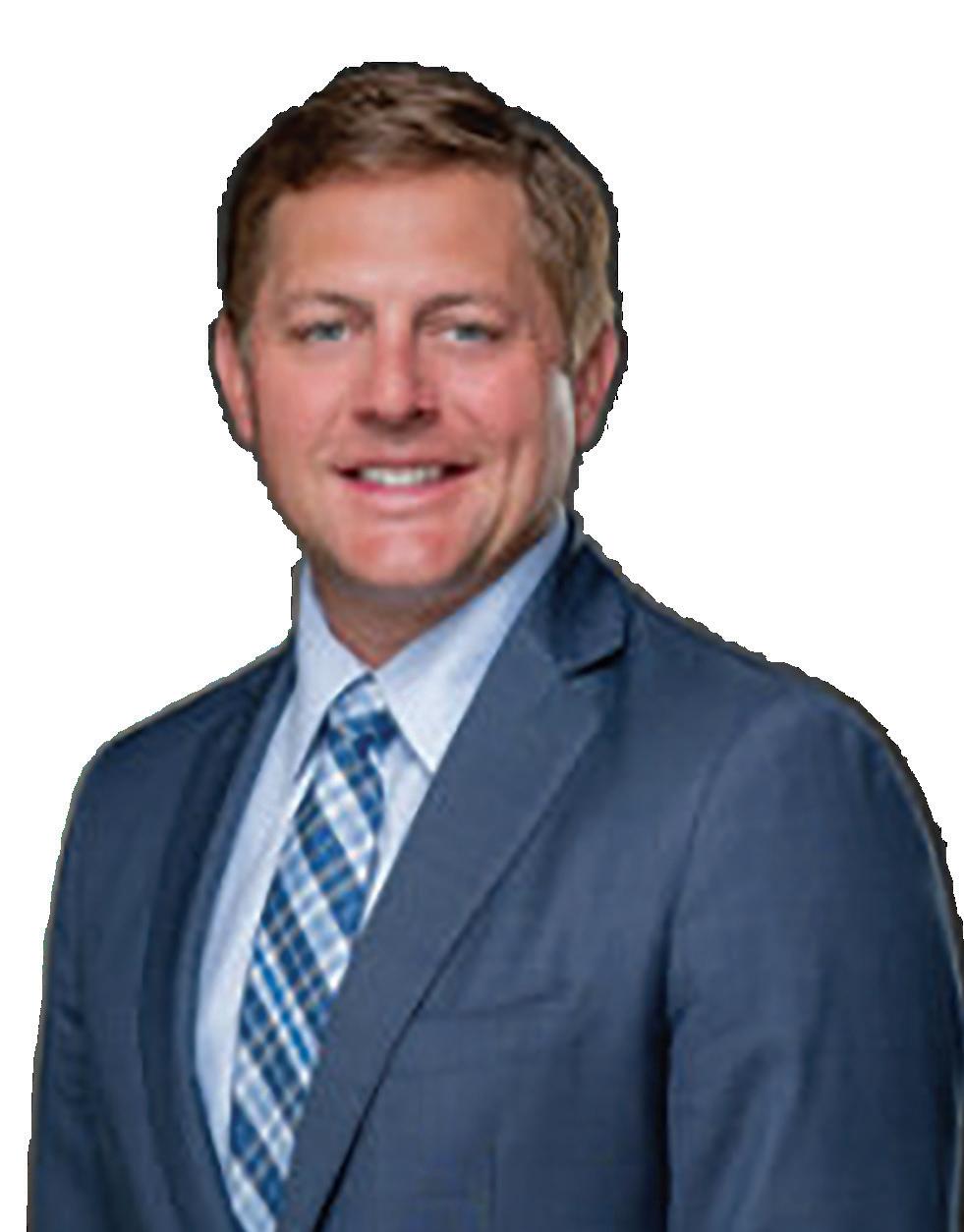
the leadership of Cowan and Hilgeman’s tort practice. Impressively successful and highly rated by the leading national services, he has thus far recovered close to $30 million on behalf of his clients.
When Chris and John formed the firm in 1994 they purchased the first floor of the law office at 12 West Monument Avenue in downtown Dayton. John has always focused his practice on general civil litigation, business law, estate planning, probate law, and family law. Chris has always focused his practice on estate planning and probate law. With the addition of Jack, the second floor of the office was acquired, and his practice focused on representation of plaintiffs in tort actions. A fourth attorney has been added in the person of Michael M. Mahon who, like Jack, is focused on tort litigation.
If your eye has reached this point in this little essay, it might be stimulating your tongue to say “well, that’s a nice and inspirational little success story, but what is it got to do with this focus on perseverance with which the essay began?” The testing of that attribute requires a baptism in fire. Such a testing came to the Hilgemans. In a reversal of the usual chronology, the son was baptized before the father. When Jack joined the firm of Cowan and Hilgeman, he was greeted as a defendant in an over-thetop lawsuit from his prior firm which really raised only two simple questions. Is a client entitled to the client’s choice of counsel? The answer is “yes.” If a client changes counsel, is the client’s prior counsel entitled to a quantum meruit share of a contingent fee later received by the new counsel. The answer is “yes,” and the determination of that share is something that could and should

ease by an experienced attorney-arbitrator.
Sometimes, however, the emotional pressure of litigation can turn the art of the simple into the chaos of the complex. That is what happened to Jack, and he was required to demonstrate for himself the same kind of perseverance that he has to demonstrate to the client he is called upon to represent in stressful situations. After five years of courtroom chaos, his perseverance earned him a favorable ruling that included a requirement that the adversary reimburse some legal expenses.
Demonstration of the attribute of perseverance can be triggered by unforeseen physical as well as by unforeseen emotional events. John’s perseverance was tested on December 15, 2023 when he suffered a massive stroke which required brain surgery, a significant stay in the intensive care unit, and significant left-side paralysis and disability. He is still doing therapy three times a day and demonstrating that perseverance pays dramatic dividends. He is fortunately right-handed and intends to be back bowling soon. His ability to articulate words is restored to excellence, and he is back in the office consulting with his son.
Having been a son who became a law partner with his father and having been a father who became a law partner with his son, I have a special fondness for father/son law stories. Like all life stories, there are some that end in joy and some that in and sadness. One of Dayton’s most prominent and revered lawyers in the first half of the twentieth century had the misfortune of learning that his lawyer son would lose his license for forging signatures on a deed. I will spare you other examples since my own personal experiences have generated nothing but joy and since the experience of John and Jack, while twice buffeted by trouble, is on course for a happy ending.
The Hilgemans are especially blessed with the means for celebrating that happy ending. John is the corporate attorney for the Dayton Beer Company, a thriving new establishment at 41 Madison Street in the downtown ballpark/hotel area. The Brewmaster just happens to be Jack’s brother Peter. As Benjamin Franklin once said, God gave us beer because he wanted us to be happy. And, as I might reverently suggest, it may help us all to persevere!
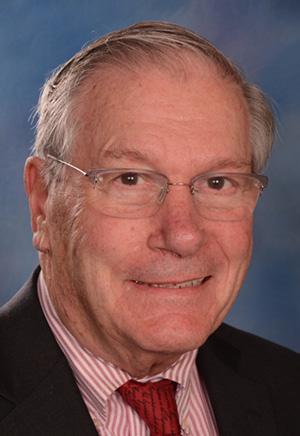 By Dave Greer Esq. Bieser Greer & Landis LLP dcg@biesergreer.com
By Dave Greer Esq. Bieser Greer & Landis LLP dcg@biesergreer.com
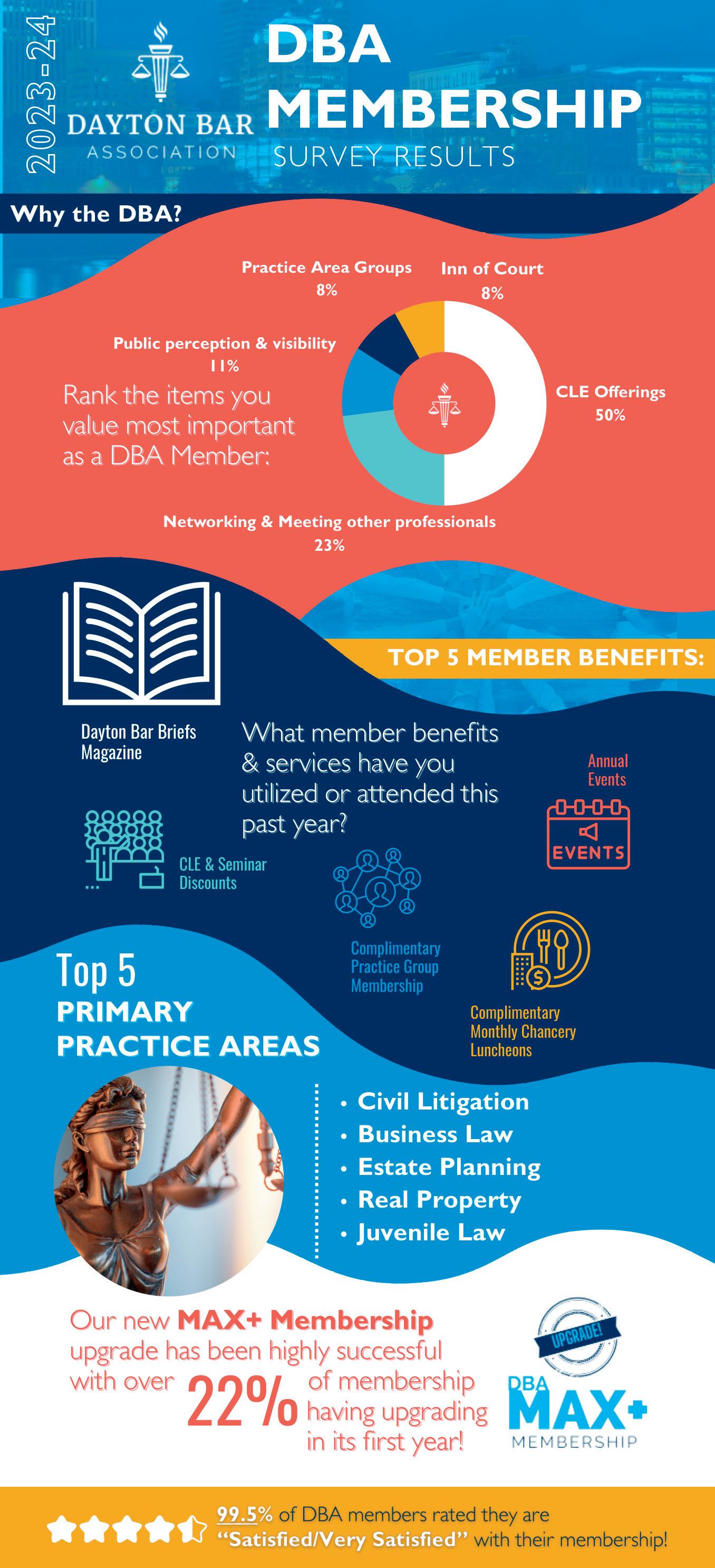
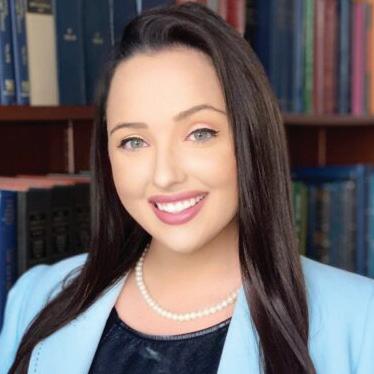 By Megan Bosley Esq. - Roberson Law - mbosley@dayton-attorney.com
By Megan Bosley Esq. - Roberson Law - mbosley@dayton-attorney.com
On March 15, 2024, the Dayton Bar Association (DBA) presented the 2024 Annual Probate Law Institute at Sinclair Community College. The program is hosted by the Estate Planning Trust & Probate Section (EPTP) of the DBA. This year’s Institute featured reputable attorneys in the field of Estate Planning and Probate, doctors, and members of the Montgomery County Probate Court, who presented on various topics, such as standing to contest a will, assisting, and working with persons with disabilities, updates in the tax laws, and changes coming in the Montgomery County Probate Court.
The first set of presenters included former DBA EPTP chair Ed Smith, Esq., Partner at Nolan, Sprowl, & Smith and T. Andrew Vollmar, Esq. from Bruns, Connell, Vollmar, & Armstrong, LLC. Their presentation provided insightful information regarding issues surrounding standing in a will contest. This presentation highlighted the importance of providing an explanation to your attorney and your family on the decision-making process during the creation of one’s estate distribution. They emphasized the importance of taking detailed notes in the event that the will is contested.
Most notably they discussed in terrorem clauses, also known as “no contest clauses,” which can be included in your estate planning documents to prevent a beneficiary from contesting the validity of the will. These clauses may prevent an individual from contesting a will, and in the event that a beneficiary does in fact contest the will, may preclude them from inheriting under the will. Some states allow exceptions such as good faith to contest the validity of the clause, so keep an eye out for future changes in Ohio Law.
The second presentation featured Attorney Judy LaMusga, President of LaMusga Law Office and Dr. Scott T. Kidd, the Director of Clinical and Behavior Support Services at Montgomery County Board of Developmental Disabilities Services (MCBDDS), alongside other members from MCBDDS. Members included Behavior Support Services Manager, Amber Newman; and Behavior Support
Specialist, Brian Katchmer. The focus of the presentation revolved around Rule 1.14 (Client with Diminished Capacity) and considerations when interacting with individuals with disabilities. They taught that individuals with disabilities may struggle to understand complex questions and gave useful tips and techniques to approach individual situations to facilitate better communication.
Practicing in the area of estate planning and probate law involves relationships with persons with disabilities, so it is important to tailor our communication to enable a better understanding of information. Amber Newman recommends using simple direct language, refraining from using legal jargon, and providing other modes of communication, such as visual communication tools. She advised that it is essential to focus on your tone of voice, be aware of both your verbal and non-verbal forms of communication, and ensure you are addressing the client directly with compassionate communication. The Board discussed numerous resources available in our community, such as adult day services, employment support, and residential support. Judy LaMusga stated that is important for attorneys to establish a relationship with others who provide support services to your client such as an aide, family members, and case managers.
The third presenter was attorney Edwin P. Morrow III, a Senior Wealth Strategist for Huntington National Bank Private Wealth Management, who focuses on tax and estate planning strategies for clients. Mr. Morrow presented important income tax solutions for trusts and estates, including the option for a young surviving spouse to defer rolling over an IRA from a deceased spouse to the surviving spouse’s IRA. Mr. Morrow explained that this option allows the young surviving spouse to withdraw money out of the inherited IRA without incurring a penalty and still allows the surviving spouse to roll over the inherited IRA to the surviving spouse’s IRA when the surviving spouse will no longer be penalized for taking a distribution. Mr. Morrow also explained that a conduit trust is now an even more attractive option for married couples in a blended family who want to protect assets for contingent beneficiaries given recent changes in the Internal Revenue Code on what
life expectancy table will be used after the death of the first spouse. These are just two examples of the wealth of information provided by Mr. Morrow, all of which can be found in the materials for the Institute.
The fourth presenter was Magistrate Paula D. Hass from Summit County Probate Court, who presented on updates in the Ohio case law. Magistrate Hass provided a summary of over 40 cases from various probate courts across the state. Topics included attorney fees, concealment of assets, written settlements, unclaimed funds, wrongful death claims, claims against an estate, and many other topics. Magistrate Hass discussed the case, Bennett v. Bennett, which established that when there is evidence of a fiduciary relationship, there is a rebuttable presumption of invalidity based on undue influence. In the case of In re Estate of Reck, the court held that a person must have a pecuniary interest in an estate in order to be able to seek the removal of a fiduciary. Magistrate Hass discussed the case In Re Estate of Wearn, which determined that a probate court may order any money that is not claimed by the heirs to be distributed to the county treasury. In Carpenter v. Carpenter the court found that one hour was not sufficient time to explain and execute a trust to a client who is known to lack capacity. The court held that the attorney failed to adequately explain the legal effects of the trust. Magistrate Hass presented on many other cases that impact estate planning and probate and helped illustrate some of the recent changes in the law.
The fifth presenter was attorney Taylor R. Baumeister from Keating Muething & Klekamp PLL. Mr. Baumeister provided information regarding the Corporate Transparency Act (CTA), which was created to protect the United States financial system from money laundering and other illicit activities. Mr. Baumeister focused on the general impact that the CTA has on estate planning. Under the CTA, any organization that was created after January 1, 2024, has 90 days to report to the CTA information about the entity including beneficial ownership. However, all entities that were created prior to 2024 have a one-year grace period for reporting. There are over 32 million entities that are expected to be impacted by the law. It is important to note that trusts will not be considered a reporting com-
pany unless the trustee owns twenty-five percent or more of the reporting company. Mr. Baumeister noted that there will be many upcoming updates to this area of the law and that changes are expected. More information can be found at FinCEN.gov.
The sixth and final presentation included a panel discussion from the Montgomery County Probate Court (MCPC) including Judge David D. Brannon, Chief Magistrate Joe Gallagher, Chief Magistrate Lisa Wiseman, and Court Administrator and Chief Deputy Lynn Cooper. The panel offered insight on the current number of cases and plans for case management within the MCPC and presented various proposed rule changes. The Court provided “Tips from the Bench,” featuring topics such as timeliness, the newly implemented checklists, and following the Ohio Rules of Civil Procedure. The panel provided an opportunity for practitioners to have open communication with the MCPC to provide feedback and suggestions to create efficiency and satisfaction with the Court.
The Dayton Bar Association Annual Probate Law Institute provides a valuable opportunity to learn about current issues in the field of estate planning and probate and an opportunity to network with other attorneys in the field. I encourage you to consider attending the 2025 Probate Law Institute.
R.L. EMMONS AND ASSOCIATES, INC.
842–A E. Franklin Street Dayton, Ohio 45459
Professional Investigative and Legal Support Services Firm
Polygraph
Asset Searches
Criminal Defense
Process Service
Witness Locates / Interviews
Surveillance
Civil Case Prep
General Investigation
DAYTON: 937 / 438–0500 Fax: 937 / 438–0577

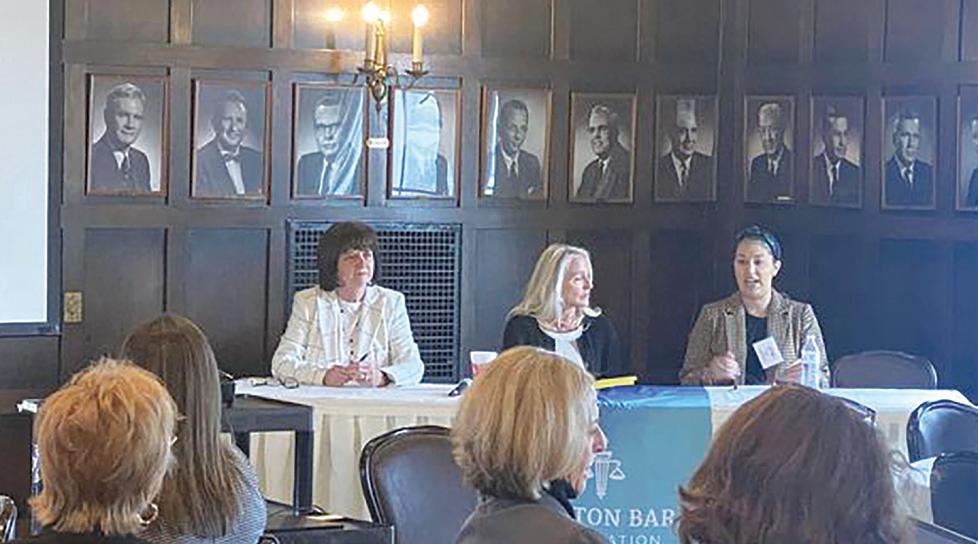
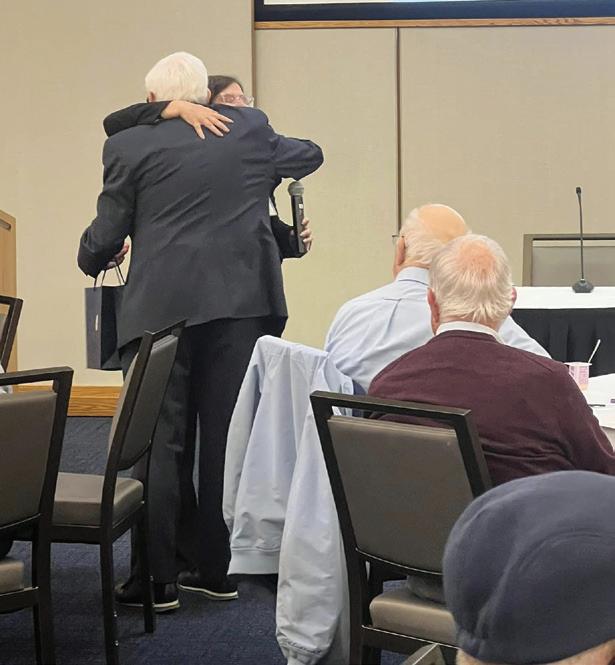
March 15th: Ed Smith receives Outstanding Volunteer Award during Probate Law Institute.

April 27th: CJ Albrektson getting his documents notarized Wills for Heroes.

February 26th: Podcast Season 2 Taping

March 19th: Federal Court Q&A
March 20th: Mont. Cty Pub. Def. Ofc. and UDSL students learning "Holistic Defense".

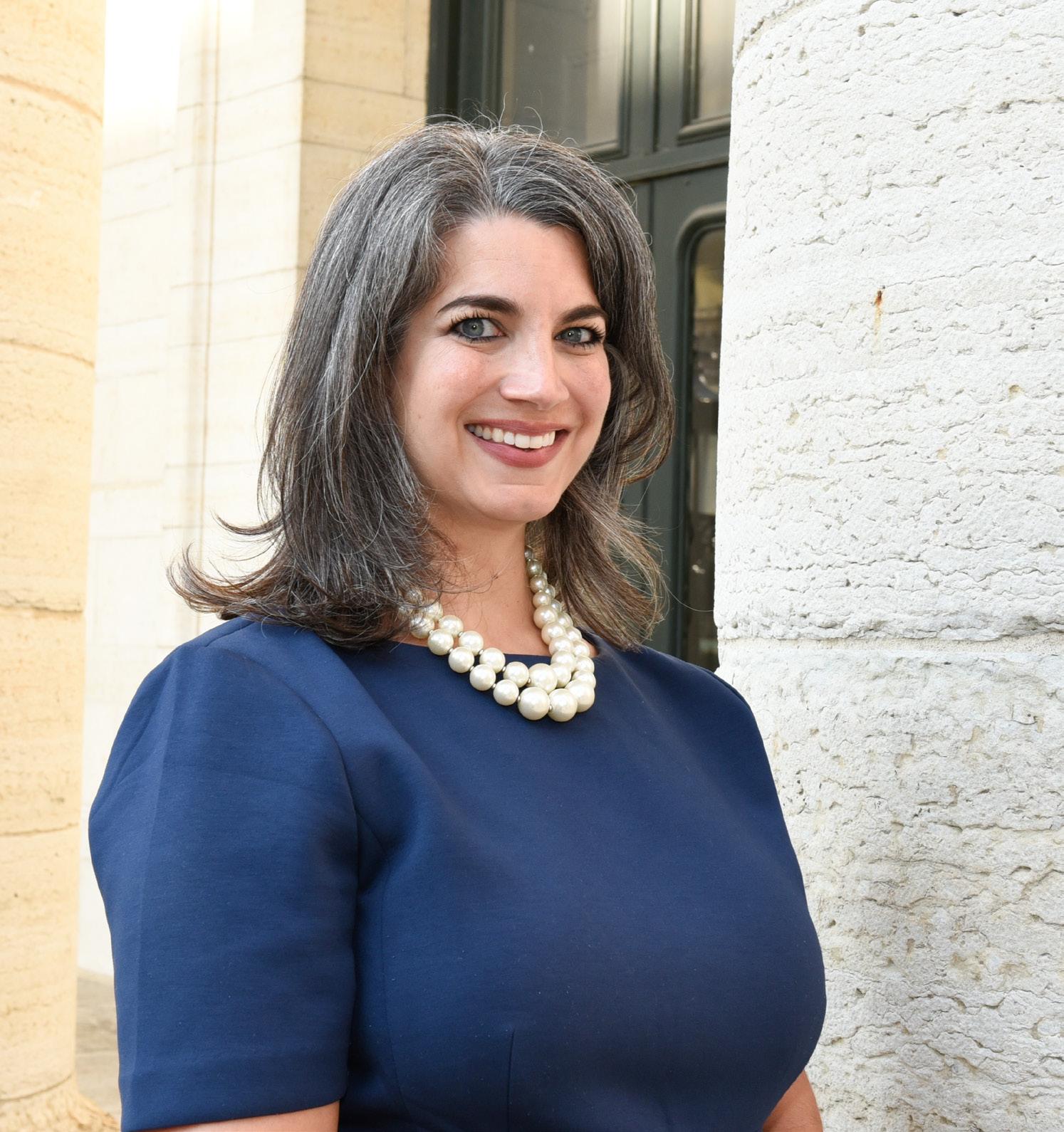
Dear Anne,



On behalf of your fellow DBA Board of Trustees, Staff, Colleagues and Friends in the legal community, we would like to thank you for your outstanding leadership of the Dayton Bar Association.
Your leadership will leave a lasting impact on the Dayton Bar Association, fostering a sense of community and inclusivity. Your dedication and commitment towards these principles have truly made us proud.
Thank you, Anne, for your role in DBA history and your contributions as our 122nd and 11th female President of the DBA!
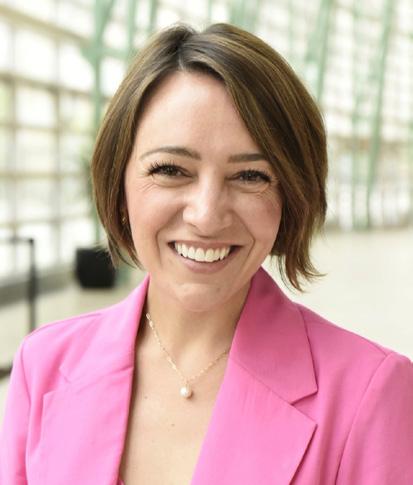
Sincerely,

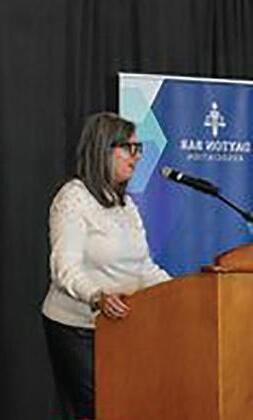
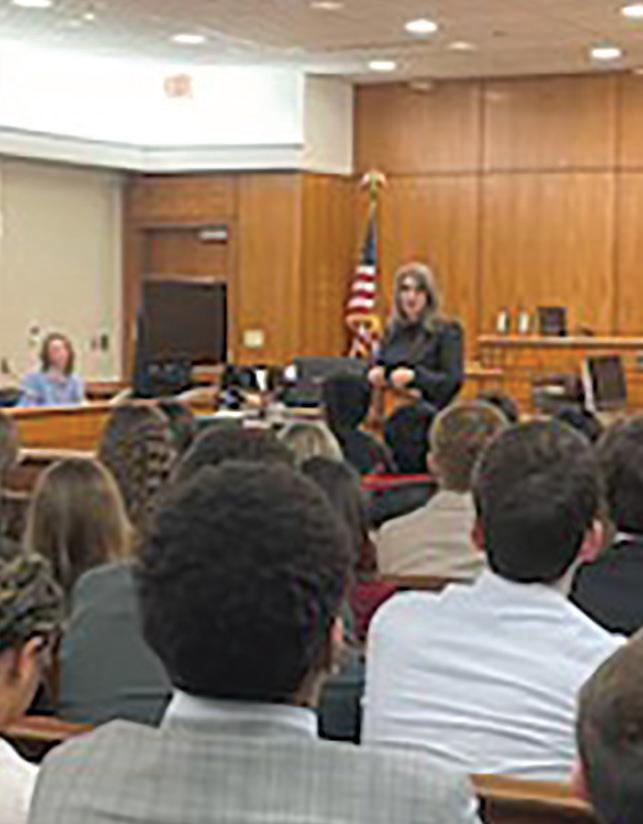
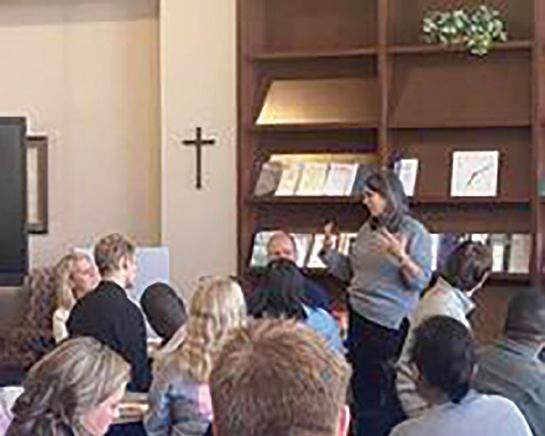
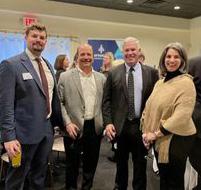
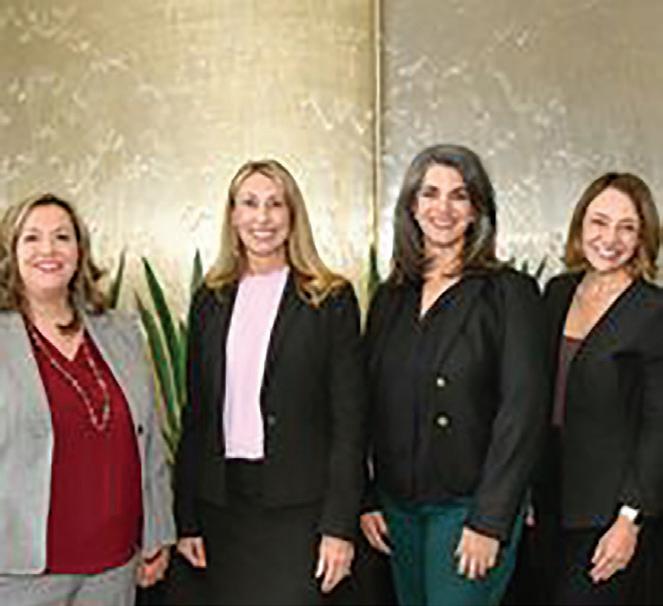
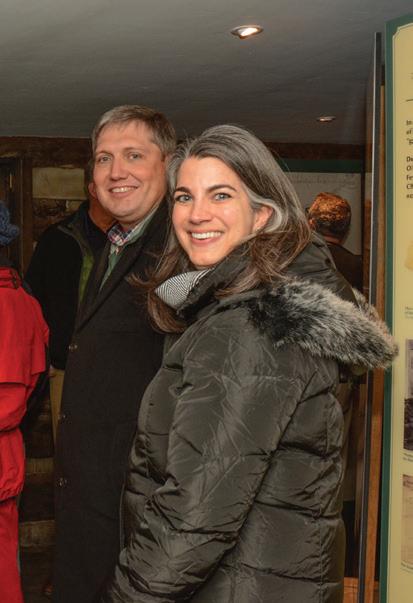


We express our deepest gratitute to ALL of our supporters who contributed to DBA Event & CLE Sponsorships from July 1, 2023, through June 30, 2024. Every sponsorship donation is critical to making these events come to life and we thank you for your continued support of our mission!
DBA Annual Partners provider sponsorship for the following DBA events:
• 2023 Bench Bar Conference
• 2023 Holiday Luncheon
• 2024 Diversity Day
• 2024 Celebration of Life
• 2024 Annual Meeting
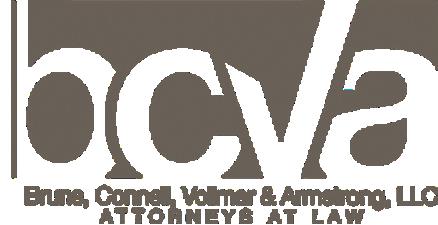

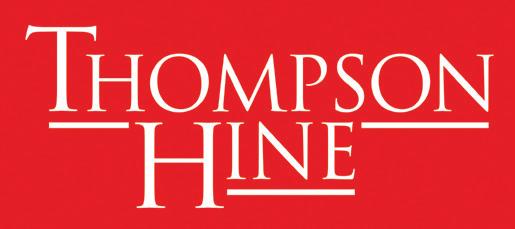
BARRISTER $1,200:

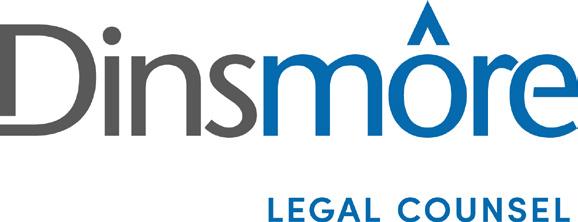



STERLING $800:


TITLE $500:
Ferneding Insurance Co.
Foos & Lentz LLP
Johnson Investment Counsel
JR Zent & Associates LLC
Pickrel Schaeffer & Ebeling Co., LPA
Ruffolo, Stone & Stone
Walling Photography
Daily Court Reporter
The Disability Foundation
Freund Freeze & Arnold
A legal professional association
Gudorf Law Group, Inc.
Jack W. & Sally Eichelberger Foundation
Jackson Lewis P.C.
James Estate Planning
LCNB
OBLIC
Pizza Factory
PNC Private Bank
Sebaly Shillito + Dyer
Retired Magistrate Bonnie Rice
The Honorable U.S. Magistrate Judge Caroline H. Gentry
Space Three
Sublime Photography
Taft Stettinius & Hollister LLP
Total Taekwondo & Fitness
Trustpoint.One Wilmerhale
Last summer, the United States Supreme Court issued a decision interpreting the Federal Arbitration Act (“FAA”) that will have wide-ranging implications for litigants and the disposition of cases in which arbitrability is at issue.
In Coinbase, Inc. v. Bielski,1 Andrew Bielski filed a class action against Coinbase, Inc. in the United States District Court for the Northern District of California, alleging that the online cryptocurrency platform failed to replace funds fraudulently taken from users’ accounts.2 When signing up for a Coinbase account, however, each user agreed to the terms of Coinbase’s User Agreement which contained an arbitration provision directing “that disputes arising under the agreement be resolved through binding arbitration.”3 Based on that arbitration clause, Coinbase moved to compel arbitration but that motion was denied by the District Court.4
Subsequently, Coinbase filed an interlocutory appeal to the United States Court of Appeals for the Ninth Circuit under the FAA, and specifically 9 U.S.C. § 16(a), which “authorizes an interlocutory appeal from the denial of a motion to compel arbitration.”5 Simultaneously, Coinbase also moved the District Court for a stay of the trial court proceedings while the arbitrability issue was appealed.6 But that motion was denied by the District Court—and the follow on motion to the Court of Appeals was also denied—based on the Ninth Circuit’s precedent that “an appeal from the denial of a motion to compel arbitration does not automatically stay district court proceedings.”7 That precedent represented the minority viewpoint on the issue as “most other Court of Appeals to address the question have held that a district court must stay its proceedings while the interlocutory appeal on the question of arbitrability is ongoing.” 8
In a 5-4 decision, the United States Supreme Court reversed the decision of the
Ninth Circuit and held that the District Court was required to stay its proceedings when Coinbase appealed from the denial of its motion to compel arbitration.9 Justice Kavanaugh, writing for the majority, relied on the principle expressed in Griggs v. Provident Consumer Discount Co., 10 wherein the Supreme Court held that “[a]n appeal, including an interlocutory appeal, ‘divests the district court of its control over those aspects of the case involved in the appeal.’” Based on that principle, Justice Kavanaugh reasoned that when “the question on appeal is whether the case belongs in arbitration or instead in the district court, the entire case is essentially ‘involved in the appeal’” and therefore “the district court must stay its proceedings while the interlocutory appeal on arbitrability is ongoing.”12 To hold otherwise, Justice Kavanaugh opined, “‘largely defeats the point of the appeal’” and opens the door to the “‘worst possible outcome’ for parties and the courts: litigating a dispute in the district court only for the court of appeals to ‘reverse and order the dispute arbitrated.’”13
Justice Jackson authored a dissent—in which Justices Sotomayor and Kagan joined in full and Justice Thomas joined in part— in which she argued that that majority’s “mandatory-general-stay rule for interlocutory arbitrability appeals comes out of nowhere” and is not called for by any statute or previous Supreme Court precedent.14 Justice Jackson also warned that the majority’s decision wrests the discretion away from the judges who are closest to the case and opens up a potential Pandora’s box for all federal litigation as it could easily be applied to disputes over venue, personal jurisdiction, forum non conveniens, or any other dispositive pretrial issues.15
The Supreme Court’s decision in Coinbase may seem procedural and narrow, but it has far-reaching implications that will significantly impact federal litigation going forward. This is for a number of reasons, the first and
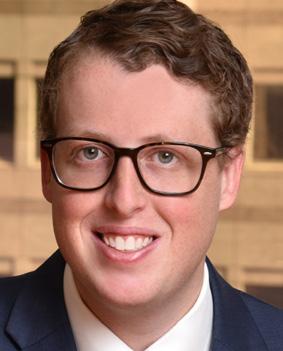 By Christopher M. Wolcott, Esq. Taft Law CWolcott@taftlaw.com
By Christopher M. Wolcott, Esq. Taft Law CWolcott@taftlaw.com
foremost of which is the ubiquitousness of arbitration provisions in modern contracts. The Supreme Court has encouraged this expansion of the use of arbitration by frequently, and consistently, issuing decisions in favor of those seeking to enforce arbitration agreements.16 These decisions highlight a general federal policy in favor of arbitration and have helped to make the FAA a “super-statute” that carries with it extra weight, especially when it conflicts with the normal operation of other federal laws.17
Second, although the holding in Coinbase eliminates the possibility of time and expense being wasted on district court proceedings that are later ordered to arbitration, it also create a distinct trial tactic that can be used to delay proceedings. Defendants are typically the ones to file motions to compel arbitration and, as Justice Jackson noted in her dissent, they now have every motivation to do so when even the denial of a such a motion will grind the plaintiff’s case to a halt while the arbitrability issue is taken up on appeal.18 It is often said that justice delayed is justice denied and that rings true here where the Supreme Court’s decision in Coinbase has the potential to “weaken plaintiffs’ legal strategies by delaying litigations and reducing their bargaining power in settlement negotiations.”19
And finally, third, the Coinbase decision will likely push some plaintiffs away from the court system and straight into binding arbitration. This is not necessarily a bad thing as meritorious cases can still be successful in the arbitration arena; but it does mean that fewer plaintiffs—and particularly those of lesser means—will avail themselves of the federal courts because they will be unwilling to risk the time and expense that interlocutory appeals like that in Coinbase will force them to incur. It will be easier and more economical for those plaintiffs to simply acquiesce to arbitration (even if such arbitration is not warranted) than to spend their limited
resources fighting over arbitrability issues in federal court.
In short, the Supreme Court’s decision in Coinbase is the latest in a long line of cases favoring arbitration and the enforceability of arbitration agreements. And in many ways, it makes a lot of sense. It eliminates the possibility of time and expense being wasted on district court proceedings that are later ordered to arbitration, saves valuable judicial resources by ensuring that only cases that should be brought in the federal courts are brought in the federal courts, and upholds the efficiency, lower cost, and other purported benefits of arbitration for the cases that are compelled to arbitration. Conversely, however, it also creates and incentivizes a specific trial tactic to delay proceedings—often at the expense of lower income plaintiffs—and could open a Pandora’s box to even greater delays in the future if the logic underlying the majority’s opinion is ever expanded to other dispositive pretrial issues.
1. 599 U.S. 736, 143 S.Ct. 1915, 216 L.Ed.2d 671 (2023).
2. Id. at 738-39.
3. Id.
4. Id. at 739.
5. Id.
6. Id.
7. Id. (citing Britton v. Co-op Banking Group, 916 F.2s 1405, 1412 (9th Cir.).
8. Id. (citing Bradford-Scott Data Corp v. Physician Comput. Network, Inc., 128 F.3d 504, 506 (7th Cir. 1997)); see also Levin v. Alms and Assoc., Inc., 634 F.3d 260, 266 (4th Cir. 2011) (“We therefore hold that an appeal on the issue of arbitrability automatically divests the district court of jurisdiction over the underlying claims and requires a stay of the action, unless the district court certifies the appeal as frivolous or forfeited.”); Blinco v. Green Tree Servicing, LLC, 366 F.3d 1249, 1253 (11th Cir. 2004) (“When a non-frivolous appeal involves the denial of a motion to compel arbitration, it makes little sense for the litigation to continue in the district court while the appeal is pending.”).
9. Id. at 747.
10. 459 U.S. 56, 103 S.Ct. 400, 74 L.Ed.2d 225 (1982).
11. Coinbase, 599 U.S. at 740 (quoting Griggs, 459 U.S. at 58).
12. Id. at 741 (quoting Griggs, 459 U.S. at 58).
13. Id. at 743 (quoting Bradford-Scott, 128 F.3d at 505-06).
14. Id. at 747-48 (Jackson, J., dissenting)
15. Id. at 748, 760 (Jackson, J., dissenting)
16. See Pamela K. Bookman, The Arbitration-Litigation Paradox, 72 VAND. L. REV. 1119, 1120 (2019).
17. See Kristen M. Blankley, The Future of Arbitration Law?, 2022 J. DISP. RESOL. 51, 86 (2022).
18. See Coinbase, 599 U.S. at 757-60 (Jackson, J., dissenting); see also Adam Polk & Jordan Isern, The Current Landscape of Forced Arbitration, 59-DEC TRIAL 24, 26-27 (2023).
19. Polk & Isern, supra note 18, at 26-27.
The DBA Board of Trustees have recently approved the following for DBA Membership:

Anya E. Darmetko Law Office of Montgomery County Public Defender
Prof. Lauren Dreshman Sinclar College
Lucas T. England Kaman & Cusimano LLC
Olivia G. Kilby Law Office of Montgomery County Public Defender
William H. Lamb Ohio Attorney General
Ryan S. Martin Law Office of Ryan Martin
Chad Sizemore Whitten Law Office LLC
Phillip S. Smith Jr. Kaman & Cusimano LLC
Carol M. Stoner Solo practitioner
Lester R. Thompson II. Self employed
Sandra Gubanc Zimmerle Formerly Air Force Material Command Law Office, WPAFB
PARALEGAL:
Emily Macario
Wright Patt Credit Union
LAW STUDENTS:
Adin Feliz UDSL
Logan King UDSL
Alex Neal UDSL
Katelyn Wauligman UDSL
PARALEGAL STUDENTs:
Alexandra Apking
Ruth Akers
Hannah Baker
Alyssa Banks
Kelly Bostic
Maya Dobbins
Kayla Evans
Taylor Filler
Daniel Frease
NaTasha Gilbert
Ethan Johnson Williams
Alexis Russell
Elly Shele
Katilyn Vann
William Vincent
Hannah Williams
The DBA is proudly serving
members!

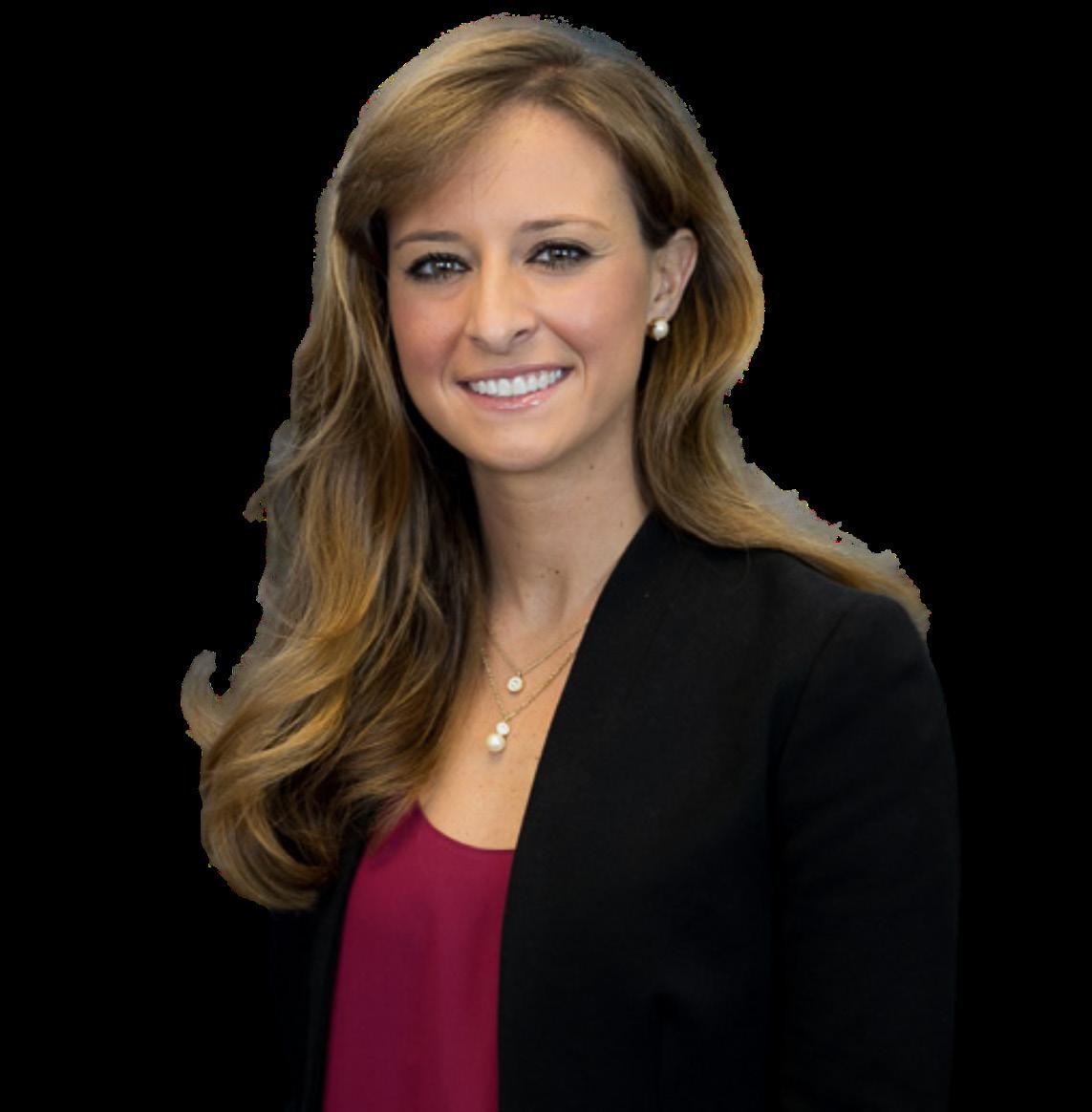 By Morgan Napier, Co-Chair, Editorial Board - Faruki PLL - mnapier@ficlaw.com
By Morgan Napier, Co-Chair, Editorial Board - Faruki PLL - mnapier@ficlaw.com
It is only fitting that this month's Rising Star, Kara Ruffolo, is being honored in the Father's Day edition as Kara decided to become a lawyer after years of shadowing her father, John Ruffolo, who is a local practitioner, DBA Bar Counsel and member of the Dayton Bar Association's Board of Trustees. Throughout her high school and college years, Kara worked for her dad and was able to attend client meetings, including one visit to a hospital to complete some estate planning for a terminally ill man. During this meeting, Kara recalls that the man was concerned for his daughter's well-being after his death, and the relief that he felt at the end of the visit knowing that she would be taken care of through his planning. Watching her dad make families feel secure and helping them through their some of their hardest moments is what led her to apply and attend her father's alma mater – the University of Dayton School of Law, where she earned her juris doctorate and certificate of concentration in Business and Compliance Law. She earned a Master of Business Administration degree the following year from the University of Dayton as well.
Now the attorney, Kara enjoys her practice in Tax, Corporate, and Estate Planning at Coolidge Wall. She takes pride in making her clients feel comfortable and confident, and seeing the relief in her client's eyes knowing that someone is taking care of them and will be there to hold their loved one's hand when it comes time to execute the estate plan. She looks forward to continuing to hone her skills in her practice areas and is appreciative of her colleagues at Coolidge Wall, Sam Warwar and Ashley Warwar (also a father-daughter duo) who she looks to as her mentors within the firm. Prior to joining Coolidge Wall, she worked for Ernst & Young as a tax consultant and clerked for Judge Huffman and Judge Singer in law school.
It is no surprise that Kara's favorite part of her job is the service she can show to others. An Alter High School and Loyola University Chicago grad, community service is a pillar of her life. During law school, Kara coached Oakwood High School's women's soccer team, and last year, she coached a soccer team of eleven-year-old girls through the Dayton Kroc Soccer Club at the Salivation Army's Dayton Kroc Center. Through these experiences, she is able to encourage girls in their sport career and help them to reach their goals. As a collegiate soccer player herself, she knows how important it is for girls to have a role model within their sport and the special bond this can form
across generations of soccer lovers. One such bond that Kara formed when she was eight years old with her then-soccer coach, Liz Kussman, continues today as Kara looks to Liz as an example in both her personal and professional life.
When Kara is not serving her clients or community, she can be found playing recreational soccer, running a half marathon, or traveling. Kara recently enjoyed traveling to Paris, France and St. Lucia with her fiancé, and they look forward to traveling to Italy and the Maldives for their honeymoon.
Most of all, Kara loves spending time with her family. Kara is the oldest sibling to her three younger brothers. Kara is close with each of her brothers, but is physically the closest with her brother Michael, who is a second-year Associate with Coolidge and whose office is just doors down. True to her nature, Kara enjoys working with her brother and watching him grow in his career.



The late Herbert M. Eikenbary granted the bulk of his estate to fund Grants and Loans to lawyers underthe age of 35 who practice/reside in Montgomery County. These Grants and Loans are to aid young, deserving lawyers who are in need of financial assistance.
Individual loans, are available up to $6,000 at 4% interest, while grants up to $4,000 are also available.
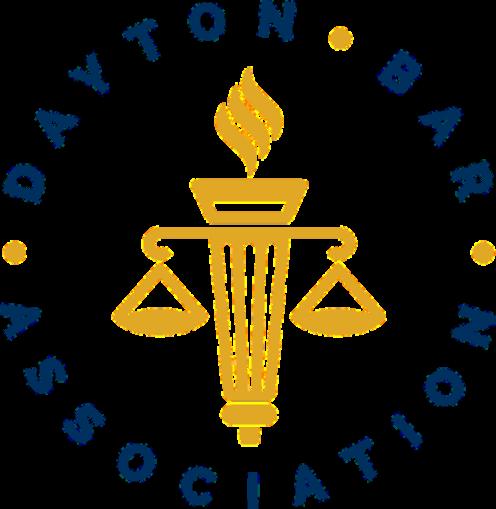

May is DBA Membership Appreciation Month!
Follow us on social the entire month for Follow us on social the entire month for Member of the Day spotlights and special prize giveaways! Member of the Day spotlights and special prize giveaways! MAY 6TH-10TH IS NATIONAL LAWYER WELL-BEING WEEK! may

5/1 11am-1:30pm Chancery Club, Law Day Celebration & Annual Court Awards @ Sinclair Conference Center
5/6 1pm-2pm Private Workout Class @ SpaceThree
5/7 Noon-1pm Self Care with Brittini Long @ Montgomery County Juvenile Court
5/8 Noon-1pm Wellness Walk @ RiverScape
5/9 8:45am-1:30pm Annual Diversity Day @ Sinclair Conference Center
5/10 All day! Healthy Eating at Playa Bowls @ Brown St Mention “DBA” for 10% Discount
5/10 8am-2pm Complimentary Portrait/Headshot Session Day #1 @ DBA
May is DBA Membership Appreciation Month! june Summer Summer Fun! Fun!
5/13 11am-4pm Complimentary Portrait/Headshot Session Day #2 @ DBA
5/16 5pm-6pm Annual Meeting @ Sinclair Conference Center
5/17 Leadership Development Nomination Deadline
5/22 11:30am-1:30pm Celebration of Life Luncheon @ Sinclair Conference Center

Leadership Development Barrister Bowl
Thursday, June 13th 6pm-8pm @ Poelking Lanes South (VIP Suite)
Price: $250 per team (4-6 per team) Pizza & Wings! 50/50 Raffle! Cash Bar!
Employment Law presents:
EEOC Mediations and Tips for Practitioners
Thursday, May 16th | Noon-1pm
Via Zoom | 1.0 Gen Hr
The program will be beneficial for attorneys already representing employees and employers, or for newer attorneys interested in this area of law.
Melanie L. Breen, ADR Mediator, United States Equal Employment Opportunity Commission, will provide an overview of the EEOC’s mediation program. She will share tips for attorneys prosecuting and defending discrimination claims on ways to prepare and engage with the EEOC to obtain reasonable outcomes; and provide an overall update on EEOC operations and typical cases.
Federal Practice presents: A Recap of Select Cases from the October 2023 SCOTUS Term and 6th Circuit Court of Appeals
Tuesday, May 21st | Noon-1pm @ DBA Seminar Room | 1.0 Gen Hr
Christopher Wolcott, Taft Stettinius & Hollister and Dan Gentry, Coolidge Wall will present a recap of select decisions from the October 2023 SCOTUS Term as well as key 6th Circuit Court of Appeals decisions from the same general time period. This recap will explore the facts of each case, the reasoning behind the Courts’ decisions, any dissents, and how the cases will be applicable to federal litigation going forward.
Corporate Counsel presents: Effectively Working with Clients and Outside Counsel
Thursday, May 23rd | Noon-1pm Via Zoom | 1.0 Gen Hr

Thank you Trustpoint.One for sponsoring this program!
A panel of experienced corporate and in-house lawyers will share their experience in effectively working with clients and outside counsel. Topics will include clear communication, and managing litigation risk, cost, and expectations to create the opportunity for successful representation.
- Lisa S. Pierce, Office Managing Partner, Dinsmore
- Brian D. Wright, Co-Managing Partner, Faruki PLL
- Kermit Lowery, Director, LexisNexis Rule of Law Foundation

Toledo Bar Association presents: Right to Repair: A Growing Debate in Intellectual Property
Friday, June 7th | Noon-1pm Via Zoom | 1.0 Gen or NLT Gen Hr (pending)
Irene Caboli, Regents Professor of Law, Texas A&AM University School of Law, will delve into the ongoing debate surrounding the right to repair. It will explore the arguments from both consumers and manufacturers, as well as recent legislative developments in the United States.
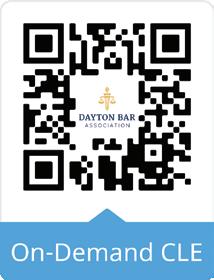



Allan Asbury
OH Supreme Ct Board of Commissioners on Grievances & Discipline
Brad Baldwin
Baldwin Valley Law
Taylor Baumeister
Keating Muething & Klekamp PLL
Suzanne Beck
Pro Bono Partnerships of OH
Neil Berman
U.S. Bankruptcy Ct, Southern District of OH
Melissa Berry
Law Ofc of Melissa Berry
Hon. David Brannon
Montgomery Cty Probate Ct
Briana Breault
U.S. Bankruptcy Ct, Southern District of OH
Melanie Breen
U.S. Equal Employment Opportunity Commission
Hon. James Brogan
Jennifer Brumby
Taft Stettinius & Hollister LLP
Hon. Julie Bruns
Montgomery Cty Juvenile Ct
Jill Bucaro
Montgomery Cty Public Defender’s Ofc
Theresa Busher
Social Security Administration, Dayton
Mag. Patricia Campbell
Greene Cty Domestic Relations Ct
Myla Cardona-Jones
Brunner Literacy Center
Chris Carville
Kentucky’s Bike Lawyer
Jennie Cole
Montgomery Cty Children Services
Lynn Cooper
Montgomery Cty Probate Ct
Anthony Corona
OH Civil Rights Commission
Jeff Cox
Faruki PLL
Hon. Denise Cross
Montgomery Cty Domestic Relations Ct
Kristina Curry
Pickrel, Schaefer & Ebeling Co., LPA
Leon Daidone
Retired, Prosecutor’s Ofc
Hon. Steve Dankof, Sr.
Montgomery Cty Common Pleas Ct
Dorian Davis
Montgomery Cty Juvenile Ct
Intervention Center
Lindsey Deck
Auman, Mahan & Furry
Catherine Dempsey LAWO
Keara Dever
Law Ofc of Keara R. Dever, LLC
Lauren Dever
Law Ofc of the Montgomery Cty Public Defender
Tricia Duff
Bieser Greer & Landis, LLP
Tiffany Dulin
Montgomery Cty Juvenile Ct
Intervention Center
Hon. Bradey Dunn
OH Civil Rights Commission
Travis Dunnington
Law Ofc of the Montgomery Cty Public Defender
Alan Duvall
Duvall & Associates, Inc.
Hon. Christopher Epley
Second District Ct of Appeals
Charlie Faruki
Faruki PLL
Emily Feaver
Montgomery Cty Common Pleas Ct
Mag. Gina Feller
Montgomery Cty Juvenile Ct
Justice Patrick Fischer
OH Supreme Ct
Ben Flowers
Ashbrook Byrne Kresege LLC
Nathaniel Fouch
Supreme Ct of OH
Taft
Zenus Franklin
Stettinius & Hollister LLP
Andrew French
Montgomery Cty Prosecutor’s Ofc
Mag. Joe Gallagher
Montgomery Cty Probate Ct
Greg Gantt
Unemployment Compensation
Review Commission
Joanna Garcia
WilmerHale
Dan Gentry
Coolidge Wall
Mag.
Caroline Gentry
U.S.D.C., Southern District of OH
Alphonse Gerhardstein
Tracy Goodpaster
Medicare Connection
Alysia Goss
Law Ofc of the Montgomery Cty Public Defender
Susan Gottschalk
Artemis Center
Nick Gounaris
Gounaris and Abboud, LPA
Michael Grauwelman
Montgomery Cty Land Bank
David Greer
Bieser Greer & Landis, LLP
Jack Greiner
Faruki PLL
Tricia Griffieth
Greater Dayton Volunteer Lawyer’s Project
Michelle Grodner
Montgomery Cty Prosecutor’s Ofc
Michelle Gross
Montgomery Cty Juvenile Ct
Robert Gurry
Gurry Law, LLC & Consulting
Mag. Paula Haas
Summit Cty Probate Ct
Melanie Hankinson
Owner/Managing Director of IKOR
Sean Harmon
Stachler & Harmon Attorneys at Law
Summer Hawks
Greater Dayton Volunteer Lawyer’s Project
Jeff Hazlett
Mediator/Arbitrator
Zachary Heck
Stettinius & Hollister LLP
Taft
Sam Hemmeter
Hemmeter Tax Consulting, Inc
Max Hersch
Ofc of the OH Public Defender
Aaron Hill
Montgomery Cty Child Support
Enforcement Agency
Prof. Thaddeus Hoffmeister
Univ. of Dayton School of Law
Ashton Hood
Brooke Horan
Foos & Lentz LLP
Hon. Mary Kate Huffman
Second District Ct of Appeals
Hon. Angelina Jackson
Montgomery Cty Common Pleas Division
Deztany Johnson
Pickrel, Schaefer & Ebeling
Linsey Johnson
Golden Years Advisory
Keith Kearney
Rogers & Greenberg, LLP
Kristen Keebaugh-Chambers
Montgomery Cty Child Support
Enforcement Agency
Anne P. Keeton
Bruns Connell Vollmar & Armstrong, LLC
Stephanie Keinath
Dayton Area Chamber of Commerce
Karl Keith
Montgomery Cty Auditor
Scott Kidd
Montgomery Cty Board of
Development Disabilities Services
Jamar King
Thompson Hine LLP
Laura Kloimwieder
U.S.D.C., Southern District of OH
Mag. John Kolberg
Montgomery Cty Juvenile Ct
Kevin Koller
U.S. Attorney’s Ofc, Southern District of OH
Mag. Ken Krochmal
Montgomery Cty Domestic Relations Ct
Judith LaMusga
LaMusga Law Ofc, LLC
Kyle Lennen
Lennen Law LLC
Mag. Kathleen Lenski
Montgomery Cty Juvenile Ct
Gary Leppla
Leppla Associates
Hon. Ronald Lewis
Second District Ct of Appeals
John Lintz
Second District Ct of Appeals
Brittini Long
Montgomery Cty ADAMHS
Kermit Lowery
LexisNexis Rule of Law Foundation
Tricia Lucido
Montgomery Cty Juvenile Ct Probation Services
Steve Magas
OH’s Bike Lawyer
Stephen Makovec
Salem Savenue Business Association
Tamara Mannix
Montgomery Cty Juvenile Ct
Dr. Kara Marciani
Forensic Psychiatry Center for Western OH
Ryan Martin
Jackson Lewis
Mag. Brandon McClain
Dayton Municipal Ct
Kim McGuirk
Montgomery Cty Juvenile Ct Volunteer Services
Mike Menninger
Houck Menninger Law, LLC
Magistrate Judge. Michael Merz
U.S.D.C., Southern District of OH
Nikole Miller
Miami Valley Urban League
Michael Millonig
Michael Millonig, LLC
Kelsey Mincheff
Thompson Hine
Gary Minyard
Dayton Live
Erin Moore
Green & Green Lawyers
Antonia Mordino
U.S.D.C., Southern District of OH
Callum Morris
U.S.D.C., Southern District of OH
Dr. Paul Morrow
Univ. of Dayton
Edwin Morrow III
Huntington National Bank
Ricky Murray
Montgomery Cty Prosecutor’s Ofc
Hon. Clifton Newman
Circuit Ct Judge, South Carolina
Hon. Michael Newman
U.S.D.C., Southern District of OH
Chad Noward
WilmerHale
Matt Pack
Montgomery Cty Juvenile Ct Intervention Center
Kenneth Parker
U.S. Attorney, Southern District of OH
Hon. Gerald Parker
Montgomery Cty Common Pleas Ct
Tim Pepper
Taft Stettinius & Hollister LLP
Lisa Pierce
Dinsmore & Shohl LLP
John Pinard
Law Ofcs of Pinard and Bryan
Denise Platfoot Lacey
Univ. of Dayton School of Law
Robert “Buzz” Portune
Foos & Lentz
Lindsey Posey
U.S.D.C., Southern District of OH
Kaylee Price
Pickrel, Schaefer & Ebeling Co., LPA
William Price
Elk & Elk
Dan Rafferty
U.S.D.C., Southern District of OH
Michael Rake
Horenstein, Nicholson & Blumenthal LPA
Dan Ramer
Fifth Third Private Bank
Jeff Rezabek
Montgomery Cty Board of Elections
Erin Rhinehart
Faruki PLL
Hon. Walter Rice
U.S.D.C., Southern District of OH
Paul Roderer, Jr.
Roderer Law Ofc
Jeremy Rose
U.S. Marshal’s Ofc
Hon.Thomas Rose
U.S.D.C., Southern District of OH
John Ruffolo
Ruffolo Stone & Stone
David Savage
WilmerHale
Jordan Savory
Thompson Hine
Prof. Jeffrey Schmidt
Univ. of Dayton School of Law
Prof. Andrea Seielstad
Univ. of Dayton School of Law
Mag. Hon. Peter Silvain, Jr.
U.S.D.C., Southern District of OH
Louis Sitler
Wood, Herron & Evans
Hon. Richard Skelton
Montgomery Cty Common Pleas Ct
Lee Slone
McMahon DeGulis
Prof. Jamie Small
Univ. of Dayton
Jim Smerbeck
U.S.D.C., Southern District of OH
Edward Smith
Nolan Sprowl & Smith
Eli Sperry
Flanagan, Lieberman & Rambo
Ryan Spiegel
Thompson Hine
Paul Stephan
LexisNexis
Nick Subashi
Subashi, Wildermuth & Justice
Nita Sweeney
Author, Mediator, Mental Health Advocate
Jennifer Theibert
UC Health
Krystal Thorp
Hockwalt & Schiff, LLC
Prof. Adam Todd
Univ. of Dayon, Prevents OH
Lee Lauren Truesdale
Dayton Foodbank
Hon. Michael Tucker
Second District Ct of Appeals
Mark Tuss
Anthony VanNoy VanNoy Firm
Victoria VanZandt
Univ. of Dayton School of Law
T. Andrew Vollmar
Bruns Connell Vollmar & Armstrong, LLC
Shannon Wahrhaftig
Erma’s House
Christopher Walker
Walker Environmental Law
Hon. Helen Wallace
Montgomery Cty Juvenile Ct
Andrew Walsh
Author, Academic Librarian
Susan Wawrose
Retired Prof. of Lawyering Skills at UDSL
Elizabeth Weinwuth
Vorys
Hon. Jeffrey Welbaum
Second District Ct of Appeals
Cynthia Westwood
Miller Westwood & Brush
Beth Whelley
Fahlgren Mortine
Christopher Wilcott
Taft Stettinius & Hollister LLP
Hon. Mary Wiseman
Montgomery Cty Common Pleas, General Division
Mag. Lisa Wiseman
Montgomery Cty Probate Ct
Christopher Wolcott
Taft, Stettinius & Hollister LLP
Hon. Timothy Wood
Montgomery Cty Domestic Relations Ct
Brian Wright
Faruki PLL
Nikole Xarhoulacos
Montgomery Cty Public Defender’s Ofc
Kristie Young
U.S.D.C., Southern District of OH






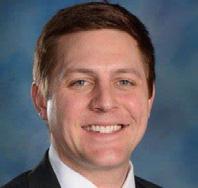


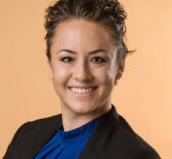
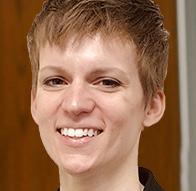
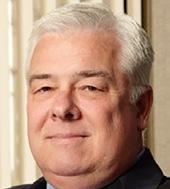
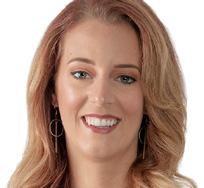


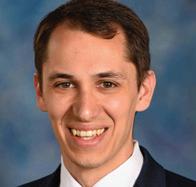

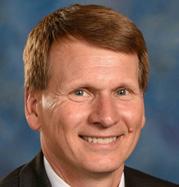


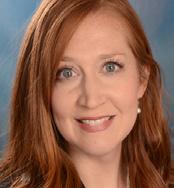
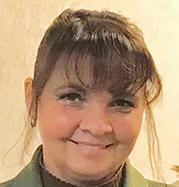


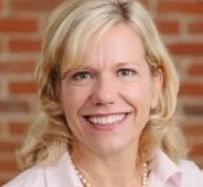


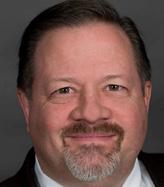
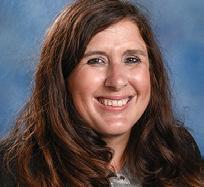





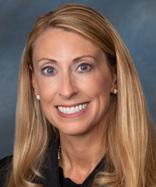
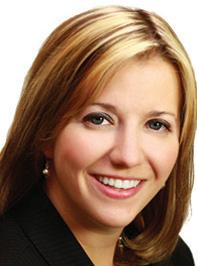




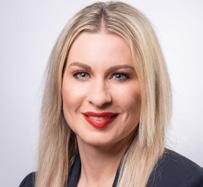

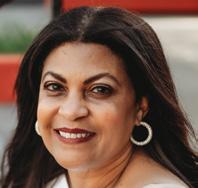
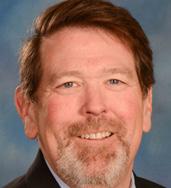

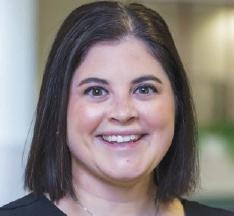


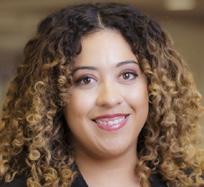

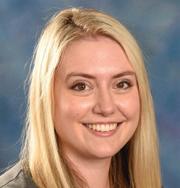
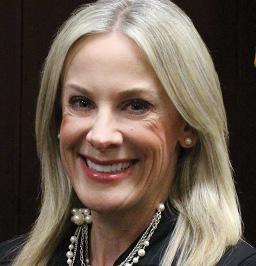
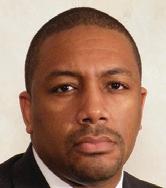
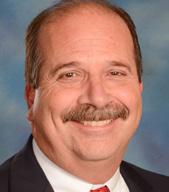
A. Avoid the Most Common Mistakes
• Do not over prepare. It is important to know your case, but it is not good business to spend 40 hours in preparation for a small case that should be treated like an arbitration. Your other clients need your attention too. If you are in court, you are not in the office to take their calls.
• Consider filing the lawsuit in a Municipal court with a jurisdictional limit of $15,000. If you are certain that on your best day the case is not worth $15,000, this may be the best option for a quick trial.
• Consider binding arbitration. There is nothing magical about trial.
• Know your client. Trials can be won or lost depending on whether a jury likes the plaintiff.
B. Jury Selection – Voir Dire and Jury Questionnaires
1. Jury?
• Defense almost always requests a jury demand. Let them pay for it!
• Juries are suspicious of plaintiffs. May get a better day with a bench trial.
• Bench trials are quicker and cheaper. Three-day jury trial is a half day bench trial.
2. Voir Dire Importance
• Juries decide cases in jury selection and will later reject evidence that contradicts their preconceived notion about the case.
• Use juror names to establish rapport.
C. The Basics of an Opening Statement
1. Avoid telling the jury anything in the opening statement that you do not believe will be 100% proven in the case in chief as you are making promises to the jury. So is the defense. Write down every “promise” the defense made in voir dire and opening. You will use that later in your closing argument.
2. State the phrase, “What the evidence will show…” That way you can basically testify!
3. Use your demonstrative exhibits. Blow ups are facts and usually incontrovertible.
D. Presentation of Evidence
1. Most personal injury trials are truly boring. Jurors literally do fall asleep, particularly during monotone videotaped testimony with medical experts shuffling papers back and forth. Break it up by using color diagrams of healthy and unhealthy discs, skeleton models, and blow ups of damage to the vehicles.
2. Too often the plaintiff is a poor witness. People remember best the first and last thing they see. So put your client in the middle if believe your
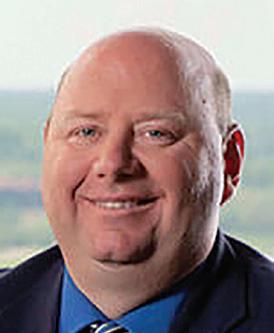 By T. Tod Mollaun, Esq. Horenstein, Nicholson & Blumenthal, LPA TMollaun@hnb-law.com
By T. Tod Mollaun, Esq. Horenstein, Nicholson & Blumenthal, LPA TMollaun@hnb-law.com
client will not do well. Consider cutting down the questions to just cover the who, what, where, when, why, and how.
3. Calling witnesses in a chronological fashion may be a good idea. However, if the strongest part of the case is damages, start the trial with your medical expert.
1.
• Plaintiff’s Independent Medical Expert (I.M.E.): Can back up your treating physician and can go farther on the issues of impairment, permanency, future damages, etc.
• Plastic Surgeon: Scars are almost always permanent and allows for future damages. A plastic surgeon can put a value on a scar via the cost of a scar revision. When a car’s exterior is damaged, you get an estimate from an auto body shop. Similarly, when a human’s exterior is damaged, you get an estimate from a human body shop!
• The Family Doctor: Great before and after witness to rebut defense points about prior injuries and conditions. The family doctor rebuts that by testifying what the plaintiff was not complaining of those issues before the date of loss.
• A medical expert has to have all the available medical records. You do not want to ever hear your medical expert answer “no” on cross to this question: “Are you aware that before this accident the plaintiff has been treating for...”
• Keep it short. Don’t bore us get to the chorus!
2. Non-Medical Experts:
• Economists/Vocational Experts: Use only on the big cases.
• Forensic Experts: Great for a premises liability cases to testify the dangerous condition was not open and obvious or identify all the “attendant circumstances.”
F. Direct and Cross-Examination of Witnesses
1. Direct
• Let your witnesses know their roles. Each witness has a part to play. If they did not, you would not call them.
• Make sure your witnesses have read their depositions. Whatever the truth was at the deposition, better stay the truth at trial.
• Know your client’s medical records. Do not let your medical expert be the only one who knows what is in the records.
• The less you lead a witness, the more convincing the answers will be.

2. Cross
• Golden Rule: Do not ask a question if you do not know the answer… unless you do not care how it is answered!
• Use an outline with points to be made with a citation (ex. line and page number of a deposition.).
• Take the deposition of defense experts whenever feasible and ask everything under the sun. You need this to limit the weasel room at trial.
• Learned treatise: Have your expert agree a piece of literature is reliable. No greater feeling than when the defense medical expert on cross says the information on WEBMD.com is not reliable and accurate.
3. Impeachment Triple C => Confirm, Credit, Contrast
• Confirm: Get the witness to reconfirm trial testimony. “Mr. Witness, earlier in your direct testimony you told us that…”
• Credit: Second, go through the deposition that confirms the following facts with the witness:
a) That you took the person’s deposition
b) The date of the deposition
c) That the witnesses’ attorney was present
d) That there was a court reporter to take the deposition transcript
e) That the person was under oath at the deposition and swore to tell the truth.
• Contrast: Finally, you direct the witness to the specific page and line in the deposition and then read the impeaching question and answer out loud. Then ask the witness, “Did I read that right?”
1. Economic: Include as an exhibit a medical expense itemization. Have a medical expert identify it as a true reflection of the medical expenses and treatment that the expert said was reasonable and necessary to treat the injury sustained in the accident.
2. Non-Economic
• A medical expert telling a jury what the plaintiff is experiencing carries weight.
• Objective medical findings highlight your medical case.
H. Closing Argument
• Theme: The same theme discussed in voir dire must be part of your closing argument.
• Promises: Remind the jury of the opening statement promises you kept and one the defense did not.
• Highlight objective findings. Blow up the MRI report that says, “disc herniation.”
• Blowup of the verdict form and fill it out for the jury line by line.”

Erik Blaine
Ryan Davis
Maddison Edelbrock
Lauren Epperley
Shannon Flood
Jacqueline Gaines
Alexander Goldstein
Elizabeth Handwerker
Summer Hawks
Thank you to the Wills for Heroes volunteers that helped first responders and their spouses obtain probate documents, on March 9th at the Dayton FOP Hall. YOU make this event possible!
Katherine Holman
Brooke Horan
Megan Kauffman
Deborah Kirschman Klopsch
Michael Larez
Donna Middlebrook
Taylor Piel
Kristina Rainer
Michael Ruffolo
Alan Schaeffer
Benjamin Schnier
Gregory Scott
Anne Shank
Sarita Simon
Pamela Spratt
Rachel Stevens
Krystal Thorp
Jane Williamson

According to a New York Times article in November 2021, more than 87,000 people died from drug overdoses during the period ending in September 2021. Dayton had the dubious distinction of leading that grim list four years earlier with 566 deaths. Community leaders in government, health, law enforcement, and social services joined together to respond to the crisis. Their combined efforts led to a drop in fatalities of nearly 50 percent in 2018. In 2023 the number stood at 297.
Montgomery County’s struggles with substance abuse, whether it be street drugs, prescription medication, or alcohol, impact the very fabric of our hometown. The toll on people’s lives is made more severe and long lasting when one realizes that each person who died left family and friends in their wake. The effect of the epidemic reaches all parts of the community. As members of the bar, we’ve seen the effect of the tragedy whether it be in the criminal, juvenile, or domestic relations. Marriages, relationships, and businesses have been stressed to the breaking point through the scourge of addiction.
Alco-Aides is, and has been for more than 60 years, a community resource in the battle against the destructive force of addiction. It began as a social club in 1957, formed by local members of Alcoholics Anonymous. It is not part of Alcoholics Anonymous but its members, for the most part, are.
The Club, as it is called, is located at 2206 E. Third Street, in the heart of Dayton’s east side. It has served all residents
This article is one of a series from the DBA’s Social Justice Initiative to inform our membership about, and enhance their participation in, many of the organizations in our community that address issues of “social justice.”
If you would like to suggest a highlight, please contact Chris Albrektson at the DBA.
of Dayton at this and its 3 prior locations: Richard Street, 1630 East 5th Street, and, until 2004, 2156 E. Third. For many of those early years the Club was a 24-hour operation. Individuals looking for sobriety and a cup of coffee (maybe not in that order) found both. Staffing at the club has always been by volunteers. Some who came for recovery were able to use their experience working at the Club to regain skills which allowed them to become once again employable.
Alco-Aides, incorporated officially as A Hope Station, is a social club. It has 501(c)(3) status. The Club, as it's called by its members, has no paid employees but does operate a fully stocked kitchen serving breakfast, lunches, and snacks. It is open to the public. As a social club its primary goal is to provide an atmosphere supportive of recovery. Various AA and some Narcotics Anonymous, (NA), and Al-Anon groups use the space at Alco-Aides to hold meetings. In addition to the reasonably priced food there is always fresh coffee on hand.
Over the last few years, the Club has teamed up with other, similar endeavors, in an effort called RAMCO, the Recovery Alliance of Montgomery County, Ohio. With the help and support of the local ADAMHS board RAMCO has enabled Alco-Aides, The Dayton Fellowship Club, Families of Addicts, Recovery Cafe’ of Dayton, and the West Side Club to pool their collective resources to assist individuals and their families on the road to recovery.
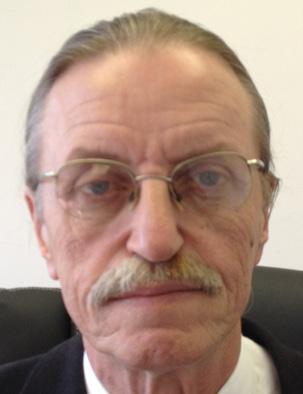 By Carl Goraleski, Esq. CiceroAdams, LLC Non-profit Clearing House Committee lracllerog@gmail.com
By Carl Goraleski, Esq. CiceroAdams, LLC Non-profit Clearing House Committee lracllerog@gmail.com

There is help out there.
Volunteer to be a part of it!
Ohio Domestic Violence Network needs Dayton area attorneys.
Artemis Center
1-800-934-9840 or (614) 781-9651
Help from Domestic Violence Hotline (937) 461-HELP (4357)
Developing cooperative incubator businesses that meet community needs.
CO-OP Dayton
Matthew Currie mcurrie@alblelaw.org coopdayton.org
Volunteer pro bono legal assistance in real estate law, employment law, and risk mitigation. Dakota Center
Mike Miller mmiller@dakotacenter.org dakotacenter.org
Providing programs to meet the changing needs of Miami Valley’s community and families.
Family Services
2211 Arbor Blvd., Moraine (937) 222-9481 information@fsadayton.org
• Victim of Crimes Act (VOCA) Trauma Recovery Center (TRC)
• The August Project
• U-Turn 180
• Womanline:
- I Can Tell
- SCAN (Stop Child Abuse and Neglect)
• Services for the Deaf & Hard of Hearing
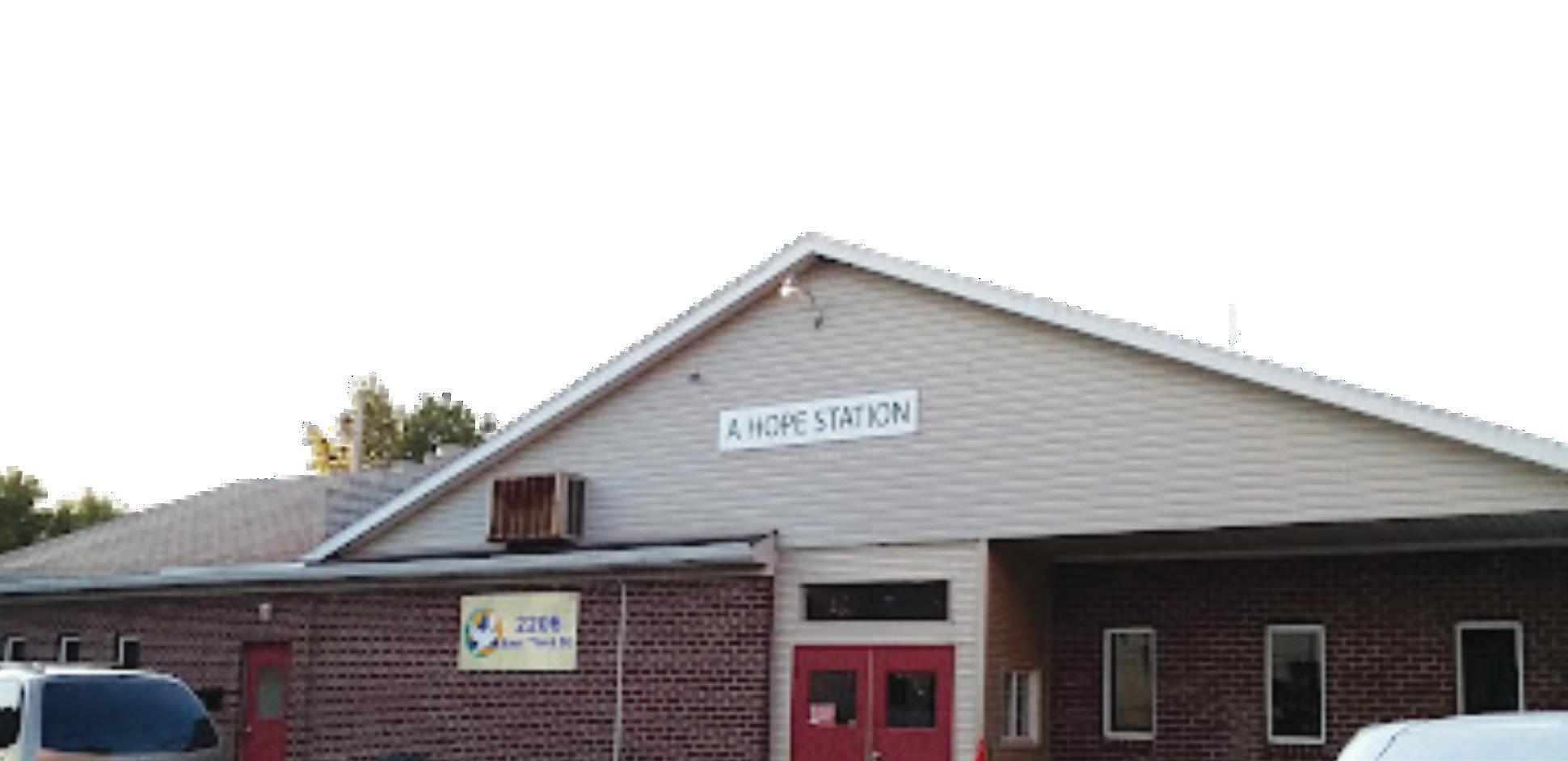
Adults recovering from mental illness.
Goodwill Easterseals
Miami Valley’s Miracle Clubhouse
243 Warren St., Dayton Kathy Trick, Coordinator (937) 262-7983 k.trick@gesmv.org gesmv.org
Feeding all who need nourishment both emotionally and nutritionally.
Njoy! Njoy!
President, Ms. Oriakhi (937) 275-3119 Njoynjoy7@gmail.com
Sin Fa fea

Cert, a cutting-edge ne Fastcase, empowers le and effortlessly identif treated unfavourably i thus providing a comp case's precedential val

Since launching Cert in Fastcase teams have b feature to work on do states, with New York Washington being the As of today, Fastcase s cases from the Suprem States, Federal Circuit Florida, Georgia, New and Texas.





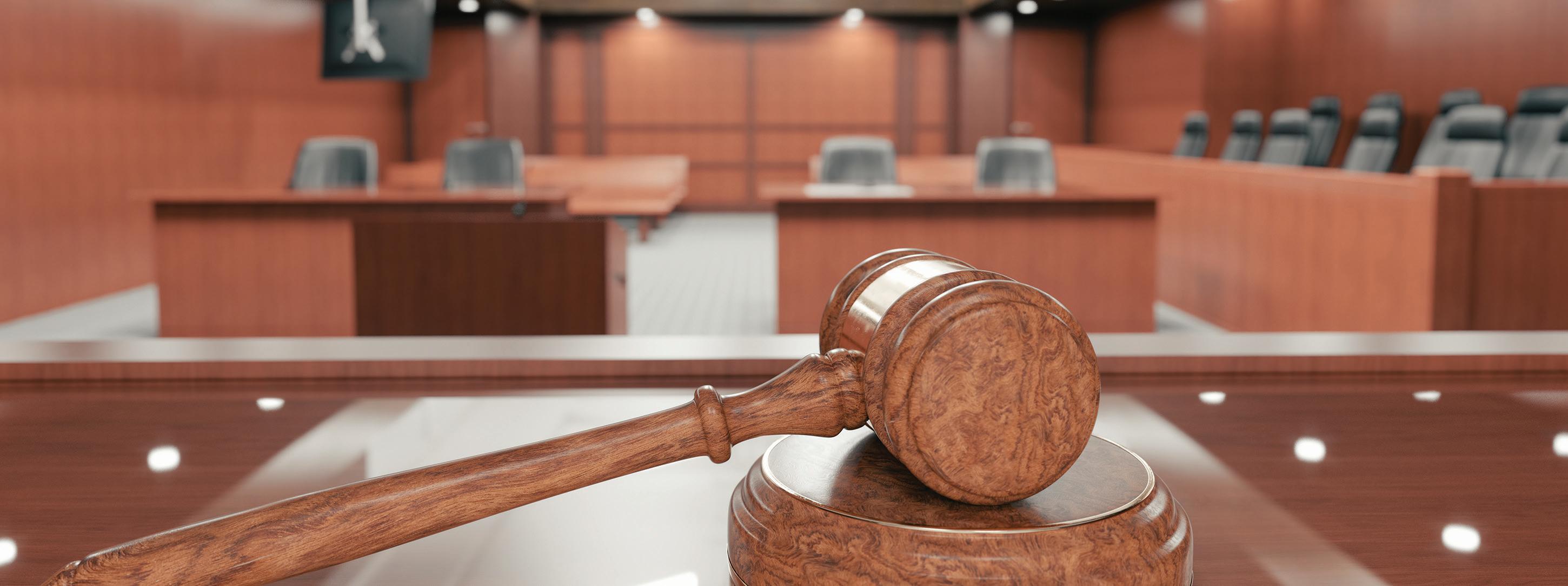 By The Honorable Barrister Richard Skelton Montgomery County Common Pleas Court - Gen Div richard.skelton@montcourt.oh.gov
By The Honorable Barrister Richard Skelton Montgomery County Common Pleas Court - Gen Div richard.skelton@montcourt.oh.gov
The general division of some very festive Court has employed a new program for ILC (Intervention in lieu of Conviction) candidates. When an ILC candidate is referred, they will rank with the highest score given to the person who has absolutely reached their Bitter End. The person will receive a program, all expense paid, to the BEYC, Bitter End Yacht Club, on Virgin Gorda, British Virgin Islands. An escort Judge will be randomly picked from the Montgomery County Common Pleas Court according to how much gray hair they have – sorry to G. Parker and others who have not yet attained the gray hair of maturity. The program will last thirty days and encompass, snorkeling, sailing, fishing and other Island frivolity. Reports are that this program has been highly successful. A couple of side notes of interest regarding the Montgomery County Common Pleas Court:
#1
Well known legal scholar The Honorable Richard Skelton, has been nominated for an appointment to the United States Supreme Court. The appointment seems to have stalled due to the inordinate amount of time devoted to the requisite background check.
#2
Honorable Judge Adkins and Honorable Judge Wiseman have been requested to host Saturday Night Live; however, their presentation is being edited significantly so they can make their presentation in a timely manner. It has been widely reported that those two may have a future in show business as they “light up” Saturday Night.
#3
The Honorable Judge Dankof has been appointed to lead the peace effort in Ukraine and the Middle East. In the unlikely event that Judge Dankof reaches an impass, he will rely upon Judge O'Connell as the so-called tie breaker towards the peace effort.
#4
Mary Kay Stirling and Steve Hollon have proclaimed too much free time on their hands and therefore request and solicit additional task projects. Upon receipt, Mary Kay and Steve will submit 28 page single space proposals within 48 hours of receipt.
Judges Jackson and Solle are awarded the “FRESH” award for the breath of fresh air they bring to their Court. The Judges and their staff will be tasked to pre-visit the Bitter End Yacht Club to ensure the ILC candidates receive the treatment they need. It is anticipated the pre-visit will take up to 30 days.
#6
The Honorable Gerald Parker and Honorable Mary Montgomery have been nominated for best Judge Appearance in the State of Ohio. Judge Parker is especially nominated as he has demonstrated that he can make any wardrobe look great. Judge Montgomery has also been especially nominated as she has demonstrated the uncanny ability to be caught in a windstorm and come out looking purrrfect.
#7The Honorable Judge Ellis faces a contested election, however, she is the early hands on favorite due to her strong work ethic and friendly demeanor to all who appear in her Court – no doubt traits acquired during her tenure at the liberal bastion better known as Greene County, Ohio.
#8
Judge Melnick will be teaching a new safety course entitled: “how to close your car door”.
HOPING EVERYONE HAD SOME FOOLISHNESS ON APRIL 1, 2024.
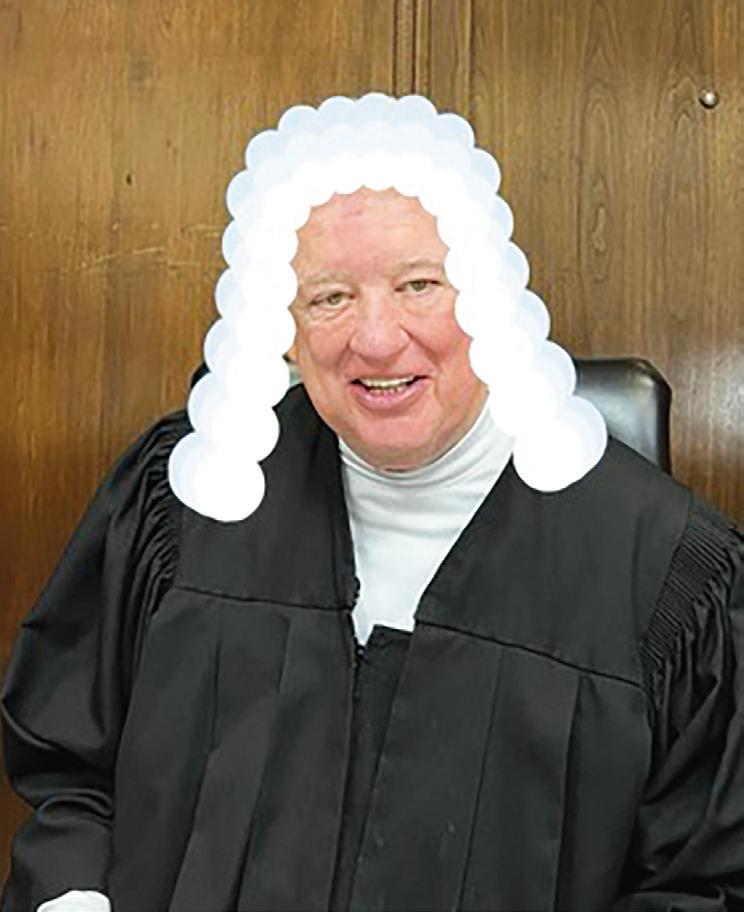
April 1st No April Fool
One of the most experienced, talented trial lawyers in Ohio has decided to retire. It is my loss (staff attorney) and a loss for the citizens of Ohio. Mark Segreti has been helping people and promoting social justice for over fifty years - licensed in 1970.
With Mark family always comes first. He and his wife Peggy have raised three children and now have 7 grandchildren, hence the decision to enjoy their family full time.
Despite leading Wittenburg to a National Championship as a star football player with blazing speed, no one would know of this facet of Segreti - why not? Because Mark Segreti is the most humble and gifted lawyer and athelete.
To say that Mark will be missed is quite the understatement as he has guided me as a judge for over 9 years. Now it’s Family Time and I only wish my friend and colleague good will and good luck.

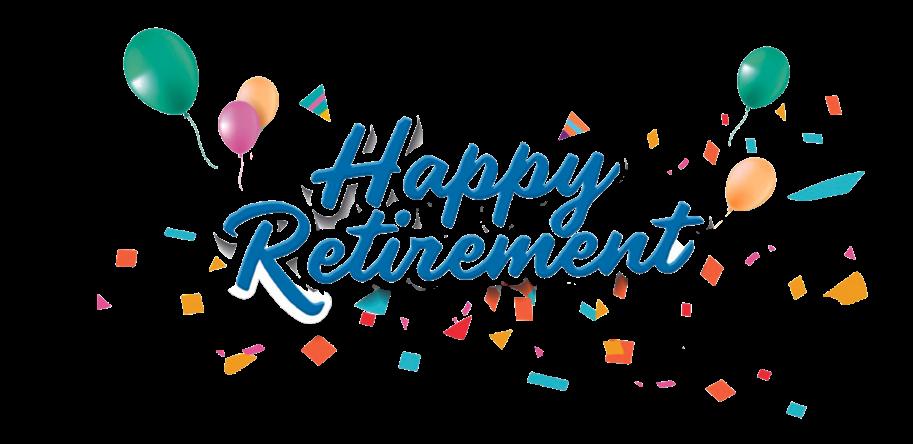
Are you involved with one of the approximately 60,000 active charities in the State of Ohio1 or thinking of joining a nonprofit board? In a recent Dayton Bar Brief, Pro Bono Partnership of Ohio (PBPO) provided guidance on fiduciary duties of nonprofit board members.2 Here, we cover the way in which board members can fulfill those duties and remain compliant with Ohio nonprofit corporation law as pertains to meetings and actions taken during meetings. Whether you are new to a nonprofit board or have been serving for years, we hope this will help you confidently take your seat at the board table and continue to make a positive impact in our community.
Preparation for board meetings should begin before the Call to Order. The board should refer to the organization’s Code of Regulations (commonly referred to as bylaws) when planning for board meetings. For example, the board should know:
• How many, where, and when board meetings must take place. Unless stated otherwise in the Code of Regulations, Ohio law requires that nonprofit boards meet at least annually3. Most meet quarterly or monthly.
• How board members must receive notice of meetings. Ohio law requires notification of the place (if any) and time of each meeting to each board member prior to the meeting.4
• What constitutes quorum. The board should anticipate that not every board member will be able to attend every meeting, so should strive to ensure a quorum will attend. Best practice for what constitutes quorum is at least the majority of the board present in order to conduct business and vote5. Under Ohio law, a nonprofit must have at least 3 board members.6
• Whether board members may attend meetings virtually. Participation by “authorized communication equipment” (e.g., phone or virtually) is acceptable under Ohio law unless expressly prohibited by the articles or Code of Regulations7. If the nonprofit’s Code of Regulations allow remote attendance, the key under Ohio law is each member must be able to fully participate in the board meeting8. This means everyone attending by phone or virtually must be able to ask questions, vote, read or hear the proceedings of the meeting, and contemporaneously communicate with other board members.
• How to handle urgent matters. If the nonprofit board needs to make a decision before the next regularly-scheduled meeting, the Code of Regulations should allow for a special meeting –or allow for unanimous written consent, wherein every board member must agree in writing with a decision.
If you notice the nonprofit’s Code of Regulations do not accurately reflect what the board is doing, consider either revising them or changing practices to comply.
As noted, each board member must receive a reminder of the date, time and place for the meeting. Best practice is also to provide other materials so board members have enough time to prepare and be able to ask questions and engage in a meaningful discussion at the meeting. Examples include:
• An agenda
• Minutes from the last meeting
• Current financial statements
• Any information that will help the board be ready to discuss and vote
Even seasoned board members can be confused about the level of detail to record in meeting minutes. What’s important to remember is that their recording is vital.
First, Ohio law requires that nonprofits keep minutes of the proceedings of its directors and committees9; and Item 8 of Part VI of the IRS Form 990 requires a nonprofit to disclose whether it “[c]ontemporaneously document[s] the meetings held or written actions undertaken during the year by” the board of directors and any committee authorized to act on behalf of the board
Second, the minutes provide a written record of formal board actions and record the history of the nonprofit and can help resolve disputes or questions about the board’s actions.
Meeting minutes should include date/time/ location; names of board members present and absent; notation of anyone entering or leaving during the meeting; and whether a quorum is present. (If quorum is not met, board members may still hold discussions but cannot make decisions and no voting may occur.)
Minutes should include items discussed, and conclusions. However, they are not a transcript of everything that was said. Best practice is to note in the minutes that “questions were asked and a discussion took place,” without details about the conversation.
 By Suzanne Beck Esq. Dayton Counsel, PBPO suzanne@pbpohio.org
By Suzanne Beck Esq. Dayton Counsel, PBPO suzanne@pbpohio.org
If a vote is held, the minutes should reflect:
• A motion and second were made
• A quorum of the board voted
• The outcome of the vote, including whether the vote was unanimous. If not, record those who opposed, abstained from, or were recused from the vote. Recording a board member’s abstention, or recusal from discussion of an entire matter, can be crucial to show appropriate consideration in cases where board member(s) have conflicts of interest.
The time of adjournment should be recorded in the minutes. The board should approve minutes at the next meeting.
Pro Bono Partnership of Ohio Can Help
Pro Bono Partnership of Ohio (PBPO) is a nonprofit organization solely dedicated to strengthening qualifying 501(c)(3) nonprofits that serve the greater Dayton and Cincinnati communities by providing pro bono transactional legal services in partnership with attorney volunteers.
If you’re a member of a nonprofit board, PBPO can provide legal expertise where you and other board members may not have the background or time on which to focus. We regularly counsel clients on matters such as corporate and governance, employment, contracts, real estate, and intellectual property. If you’re an attorney who wants to share your skills with nonprofits, you can volunteer with PBPO.
PBPO also offers educational seminars, webinars, and publications to keep board members and leaders current and compliant with legal regulations applicable to the operation of nonprofits (see our Resources).
For more info or to volunteer, visit pbpohio.org, or contact Suzanne Beck, Dayton Counsel, suzanne@pbpohio.org or (937) 396-2131.
1 https://www.ohioattorneygeneral.gov/
2 Dayton Bar Briefs 35 (March/April 2023)
3 Ohio R.C. §1702.16
4 Ohio R.C. §1702.31(C)
5 Ohio R.C. §1702.32
6 Ohio R.C.§1702.27 (A)(1)
7 Ohio R.C. §1702.17(C)
8 Ohio. R.C.§1702.17(C)
9 Ohio R.C. §1702.15
The Dayton Bar Foundation (DBF) is a 501(c)(3) charitable organization and serves as the giving arm of the Greater Dayton Legal Community. Your contribution will enable the DBF to continue to fulfill its mission of funding innovative local organizations in their quest to improve our community by promoting equal access to justice and respect for the law. In the past few years your contributions helped to fund grants to:
•AdvocAtes for BAsic leGAl equAlity (ABle)
•GreAter dAyton volunteer lAwyers ProJect (GdvlP)
•lAw & leAdersHiP institute
•leGAl Aid of western oHio (lAwo)
•MiAMi university Pre-lAw center
•wills for Heroes
Dayton Bar Foundation, 109 N. Main St., Ste. 600, Dayton OH 45402-1129
Contributions may also be submitted online: daybar.org/dbfdonate Make a donation now and help us make a difference through our programs! Gifts may also be made in honor or in memory of family, friends or colleagues.
I am pleased to support the Dayton Bar Foundation with a gift of: $50 $100 $250 $500 Other $
Check Enclosed : Check #
Charge my: VISA
Expiration: / Security Code (3 or 4 digit)
Billing Zip Code: _________________________________________________________________
Signature: (AS SHOWN ON CREDIT CARD)



As the legal profession evolves, so too does the imperative for young lawyers to cultivate not only legal expertise but also a commitment to public service and social justice. In this pursuit, organizations like the Greater Dayton Volunteer Lawyers Project (GDVLP) play a pivotal role, offering a platform for young lawyers to engage in pro bono work that not only bridges the justice gap but also enriches their professional development.
Founded on the principles of equal access to justice, GDVLP serves as a catalyst for pro bono engagement, connecting legal professionals with underserved individuals and communities in the Greater Dayton area. By partnering with law firms and community organizations, GDVLP facilitates pro bono initiatives that address a wide range of legal needs, from civil rights and family law to housing and immigration.
For young lawyers, GDVLP offers a gateway to pro bono work that is both meaningful and impactful. Through GDVLP's network of volunteer attorneys, young lawyers have access to mentorship, training, and support as they navigate their first pro bono cases. Moreover, GDVLP provides logistical assistance, case referrals, and resources to help law firms integrate pro bono opportunities into their professional development programs for young associates.
GDVLP's pro bono programs present young lawyers with unparalleled opportunities for professional development and skills enhancement. By participating in pro bono cases, young lawyers gain practical experience in client representation, case management, and courtroom advocacy—skills that are essential for their growth as legal practitioners.
Moreover, GDVLP offers training workshops, CLE programs, and mentorship opportunities tailored to the needs of young lawyers. These educational resources not only expand young lawyers' legal knowledge but also foster a deeper understanding of social justice issues and the ethical responsibilities of legal professionals.
Through its collaboration with local law firms, GDVLP helps cultivate a culture of service and social responsibility among young lawyers. By encouraging newer associates to participate in pro bono opportunities, law firms demonstrate their commitment to making a positive impact in the community and upholding the values of access to justice.
Furthermore, GDVLP's pro bono initiatives offer young lawyers a sense of purpose and fulfillment that goes beyond billable hours and client meetings. By contributing to the greater good and advocating for those who are marginalized or disadvantaged, young lawyers embody the highest ideals of the legal profession and inspire others to follow in their footsteps. Making these opportunities available to younger associates helps them find fulfillment and satisfaction that will help retain talent in your firm.
In conclusion, GDVLP plays a crucial role in assisting law firms in building the knowledge and skills of young lawyers through encouraging their participation in pro bono opportunities. By providing mentorship, training, and support, GDVLP empowers young lawyers to make a meaningful difference in the lives of others while advancing their professional development and personal fulfillment.
As law firms embrace pro bono as an integral part of their professional culture, they not only bridge the justice gap but also nurture the next generation of advocates and leaders committed to upholding the principles of equality, fairness, and access to justice for all. Through partnership with GDVLP, both sole practitioners and law firms have the opportunity to shape a future where justice is not a privilege but a fundamental right for every individual in our society.
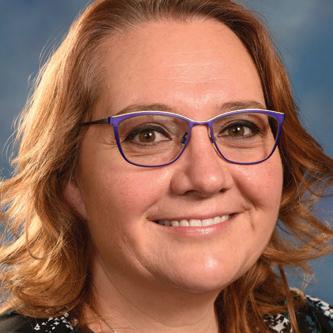 By Summer D. Hawks, Esq. Executive Director, GDVLP summer@gdvlp.org
By Summer D. Hawks, Esq. Executive Director, GDVLP summer@gdvlp.org


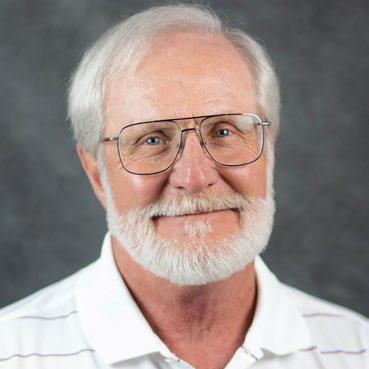 SBy Scott R. Mote, Esq. Executive Director, OLAP
SBy Scott R. Mote, Esq. Executive Director, OLAP
elf-care is a basic human necessity. It means taking care of all parts of yourself: accepting your flaws and weaknesses, and taking charge of your emotional, mental and physical well-being. Practicing self-care does not mean you are selfish or narcissistic. It means that you are taking the steps to be the best you to live a healthy and meaningful life.
Lawyers are responsible for helping others solve problems, but it is very important that you learn how to take care of yourself first. To be the best you, you need to make self-care a priority. It is essential for building resilience around stress in your life and helps you cope with anxiety, burnout, stress and depression. Below are nine ways you can start to practice self-care.
Be kind to yourself
Have you heard the negative thought that pops into your head when you make a mistake, when you say the wrong words, when you wake up in the morning, when you are late? It might tell you that you are stupid, that you are ugly, that you are not good at your job. Learn to recognize these thoughts and challenge them. Replace them with something positive. For example, if you double-booked meetings, and the voice tells you that you are unorganized and a failure, tell yourself that you will do a better job of keeping your calendar up to date. Replacing the negative thoughts with positive affirmations will help you start to believe them.
Eat a balanced diet
A person who eats mostly refined (processed) foods, ingests more than 45 teaspoons of sugar a day, and eats more than 45% of calories from fat is more likely to suffer health problems than a person who eats mostly fruits, vegetables, whole grains, proteins and legumes. Health issues include a higher risk of heart attack, diabetes, arthritis, sleep disorder, depression, cancer, etc. Those who choose to eat healthy have confidence, live longer, have fewer accidents and a higher energy level.
The focus of a healthy diet should be four key ingredients daily: protein, good fats, complex carbohydrates and water. You should also invest in a good multi-vitamin.
Exercise regularly
Multiple studies have shown that people who exercise regularly (five times a week for at least 30 minutes) have:
• More energy.
• Sharper memory.
• Improved mood.
• Better concentration.
• Stronger resilience.
• Higher self-esteem and self-confidence.
• Better sleep.
• Less depression.
• Less anxiety.
• Less stress.
If you cannot find time to exercise, break it up throughout the day into smaller intervals to equal a total of 30 minutes, as long as your heart rate increases each time. Take the stairs, walk or go to the gym during your lunch break, park your car farther away from the entrance – these small steps can add up.
Get quality sleep
Adequate sleep is another important part of self-care. Beware of fatigue, a mental or physical state of extreme tiredness and lack of energy. This happens when you try desperately to stay awake, but you still find your head dropping and eyelids shutting with no control, or you just have an overall feeling of being tired. Symptoms of fatigue include trouble concentrating, making decisions, problem-solving, listening and relating to others, which are all requirements of being a good lawyer.
A lack of sleep can result in a greater chance of feeling burned out, an increased chance of heart attack, high blood pressure, stroke and obesity.
The good news is that those who already incorporate a healthy diet and exercise into their daily schedules tend to find that sleep comes easier for them.
To get at least eight hours of sleep, try to build a habit of going to bed at the same time every night and waking up at the same time every day. This consistency stimulates the body’s sleep-wake cycle. If you have trouble falling asleep, some supplements like over-the-counter melatonin have been shown to help (but always consult with your doctor first).
Meditation is a practice that focuses your mind on a particular object, thought or activity. The benefits of meditation are plenty. It can reduce stress, control anxiety, enhance self-awareness, lengthen your attention span and improve sleep.
When you stay inside all day, work long hours and hardly take any breaks, you shut yourself out of your natural habitat--nature. A study found that people who moved from a city to a rural area saw a reduction in depression, and people who moved away from a rural area into a city saw an increase in depression. Another study had depressed people who lived in cities take a nature walk and found that their mood was five times better than the mood improvement of non-depressed people. When scientists compared people who run on treadmills in a gym with people who run in nature, they discovered that there is a higher reduction in depression for those who run in nature. When you are faced with a natural landscape, you get a sense that you and your concerns are very small, and that the world is so much larger than you are. This helps you see the bigger ways you are connected to everything around you. Life is not just about going to the office and building up your retirement account. It’s so much more than that!
Be grateful
Instead of focusing on the things we don’t have or the challenges in our lives, it is important to make gratitude a part of our regular health routine. Many studies have shown that displaying gratitude helps us become healthier, happier and more successful. Showing or practicing gratitude can be done in several ways: say thank you to someone; write a hand-written thank-you note; keep a gratitude journal; thank yourself.
Take breaks from electronics
Many experts believe that spending too much time online can lead to problems, such as stress, anxiety, sleep disorders and depression.
If you are feeling stressed or anxious, it might be time for a digital detox— committing to refraining from technology for a specific amount of time. It does not mean that you must totally disengage from your devices—that would be impossible. We all have work to do, and we most likely need technology to do it. A digital detox could be for a weekend, a couple days or even a couple hours a day. This might seem impossible to do for some people, but it can and should be done, especially if your technology time is getting in the way of your other responsibilities.
Live in the present
Living in the present, or mindfulness, is not just a popular phrase. It’s an evidence-backed lifestyle that psychologists recommend for those struggling with anxiety. Being in the present moment, or the “here and now,” means that you are aware and mindful of what is happening at this very moment. You are not distracted by events from the past and you are not worrying about the future. All your attention is focused on the present moment. This helps relieve stress and anxiety.
As you focus more on self-care, try to build a self-care plan. You can do this by accessing your needs and considering your stressors. Once you identify these, you can devise self-care strategies to address them. Remember to take small steps and schedule time for self-care. Your body, mind and co-workers will thank you for it.
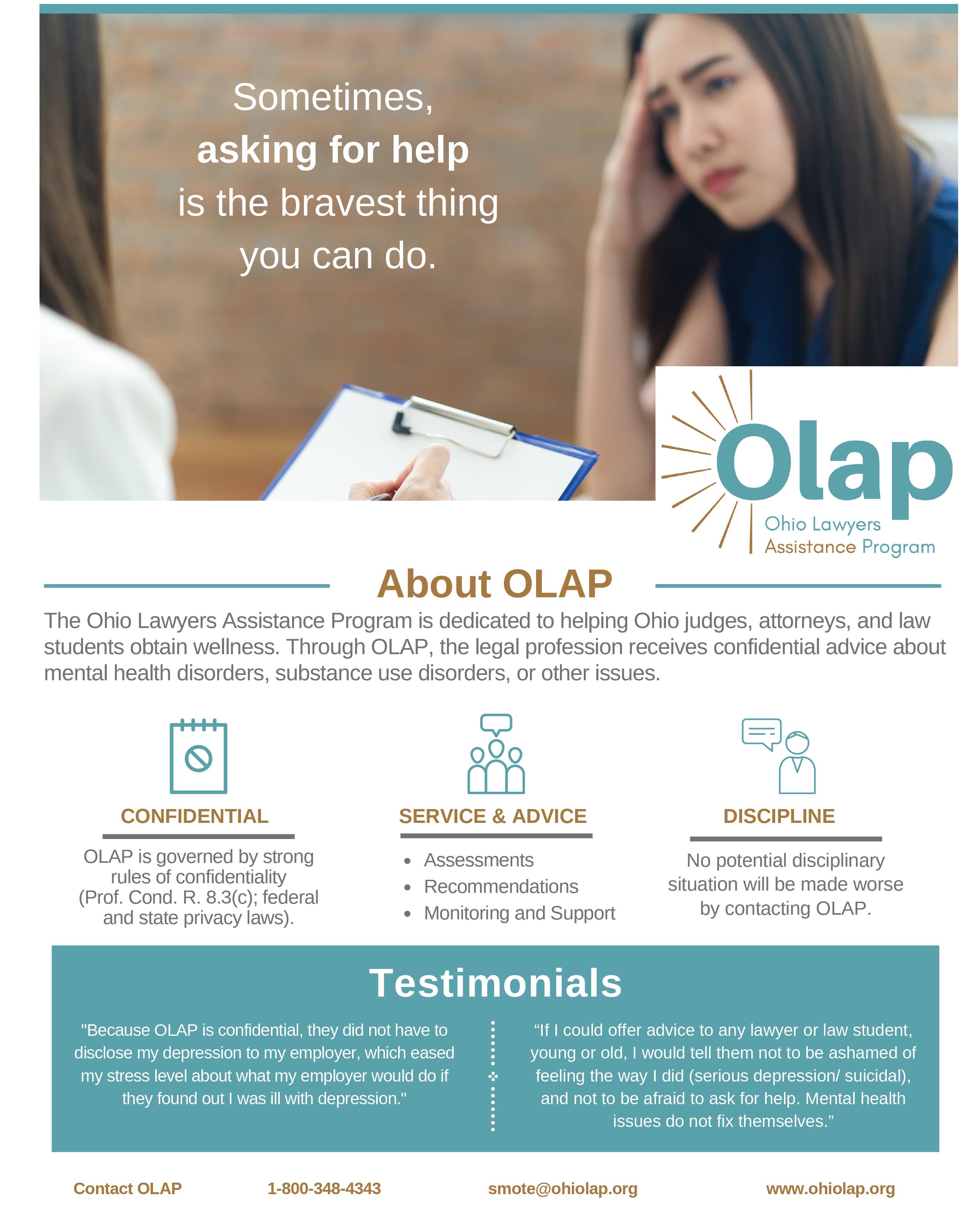



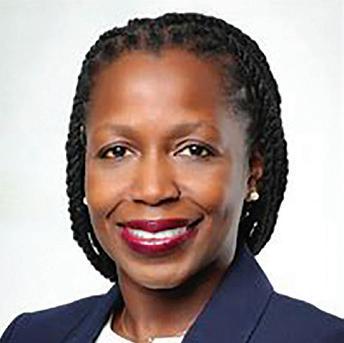

The Board of Trustees of Advocates for Basic Legal Equality, Inc. are delighted to announce the appointment of Makiedah Messam as their new Executive Director. With an extensive background in public interest law, including significant roles in overseeing investigations and promoting accountability within law enforcement agencies, Makiedah brings a wealth of experience and leadership to the organization.
After 43 out of 170 years as a firm located at the corner of Third and Main in Downtown Dayton, the partners of Bieser Greer & Landis LLP are pleased to announce that they have moved to a new building at 409 E. Monument Ave., Suite 400, Dayton, OH 45402. All phone numbers and email addresses will remain the same with the exception of their fax#. This has been disconnected and messages are rerouted straight to individuals at their direct dial. They welcome you to stop by and pay a visit!
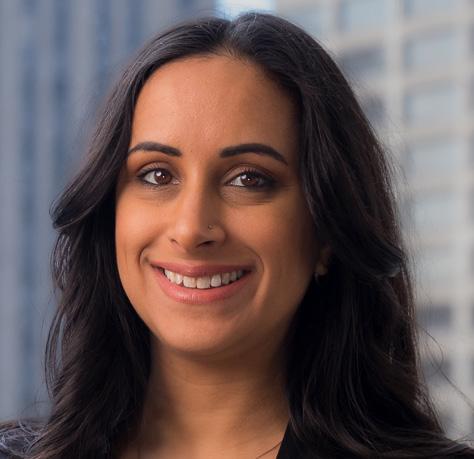
The law firm of Coolidge Wall Co., L.P.A. is pleased to announce that Natasha J. Mumford is joining the firm to serve in the combined role of Chief Financial Officer and Chief Operating Officer. Mumford was previously Controller and Interim CEO at The Rehabilitation Institute of Ohio, a Joint Venture Between Premier Health and Encompass Health.

Sinclair Community College Paralegal Program and the Greater Dayton Volunteer Lawyers Project (GDVLP) are pleased to announce Tricia Griffieth is this year’s recipient of the "Paralegal of the Year Award". Tricia is GDVLP's, Domestic Relations specialist and is the right hand to the volunteer divorce attorneys and travels often, to various counties. She graduated from Edison State Community College with her paralegal degree in 1999; earned her Bachelor of Organizational Management in 2005 and went on to obtain her MBA in business administration in May 2021 - both from Bluffton University. When not working she enjoys spending playing with her dog, Apollo, and volunteering on medical mission trips to third world countries.

We are looking to grow our current roster of authors.
Join the DBA Editorial Board and contribute your talents to the Dayton Bar Briefs Magazine
Questions about joining? Contact DBA Editorial Board Chairs Nathaniel Fouch nathaniel.fouch@sc.ohio.gov Morgan Napier mnapier@ficlaw.com
Dennis J. Langer
Retired Common Pleas Judge (937) 367-4776 LangerMediation.com
Jeffrey A. Hazlett Esq. 5276 Burning Bush Lane, Kettering, Ohio 45429-5842 (937) 689-3193 hazlettjeffrey@gmail.com nadn.org/ jeffrey-hazlett
SPACE In Oakwood for rent. (937) 293-9189 or rodererlaw@aol.com
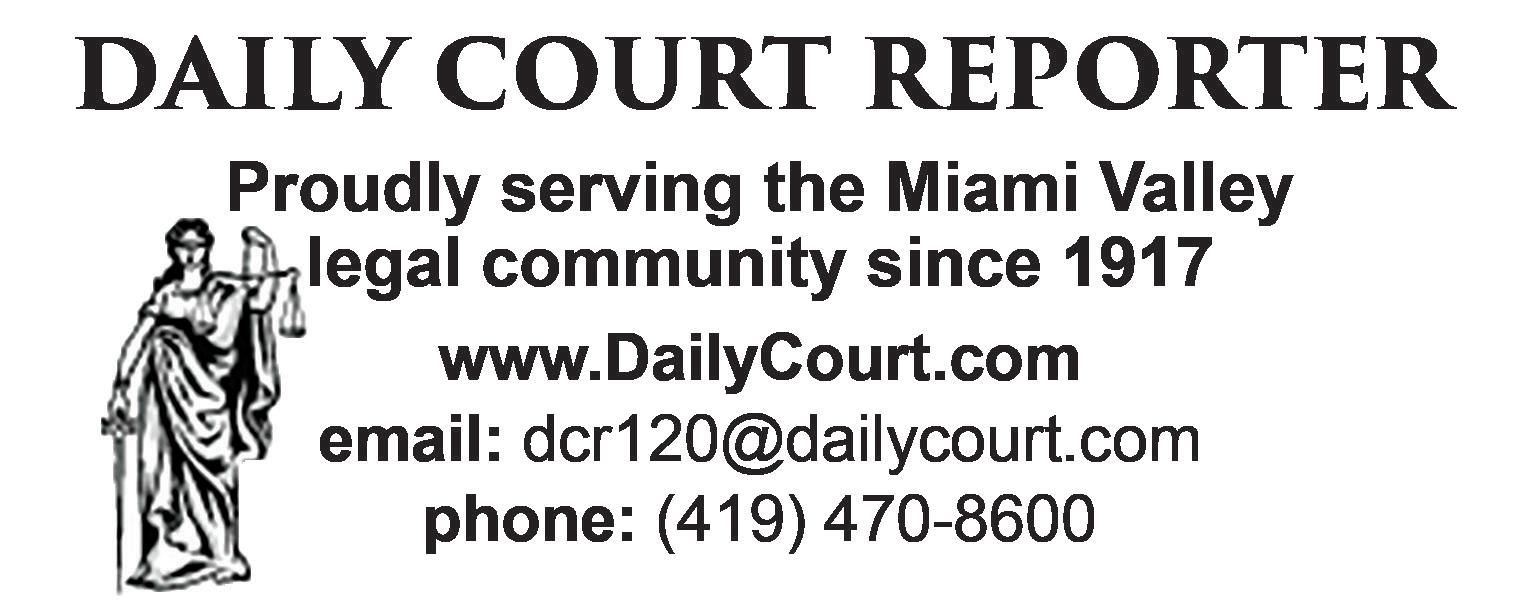

109 N. Main St., Suite 600 Dayton, OH 45402–1129
ADDRESS SERVICE REQUESTED
